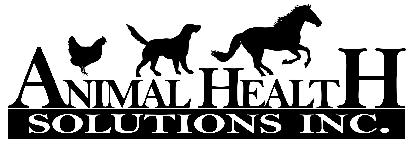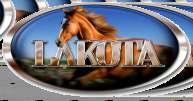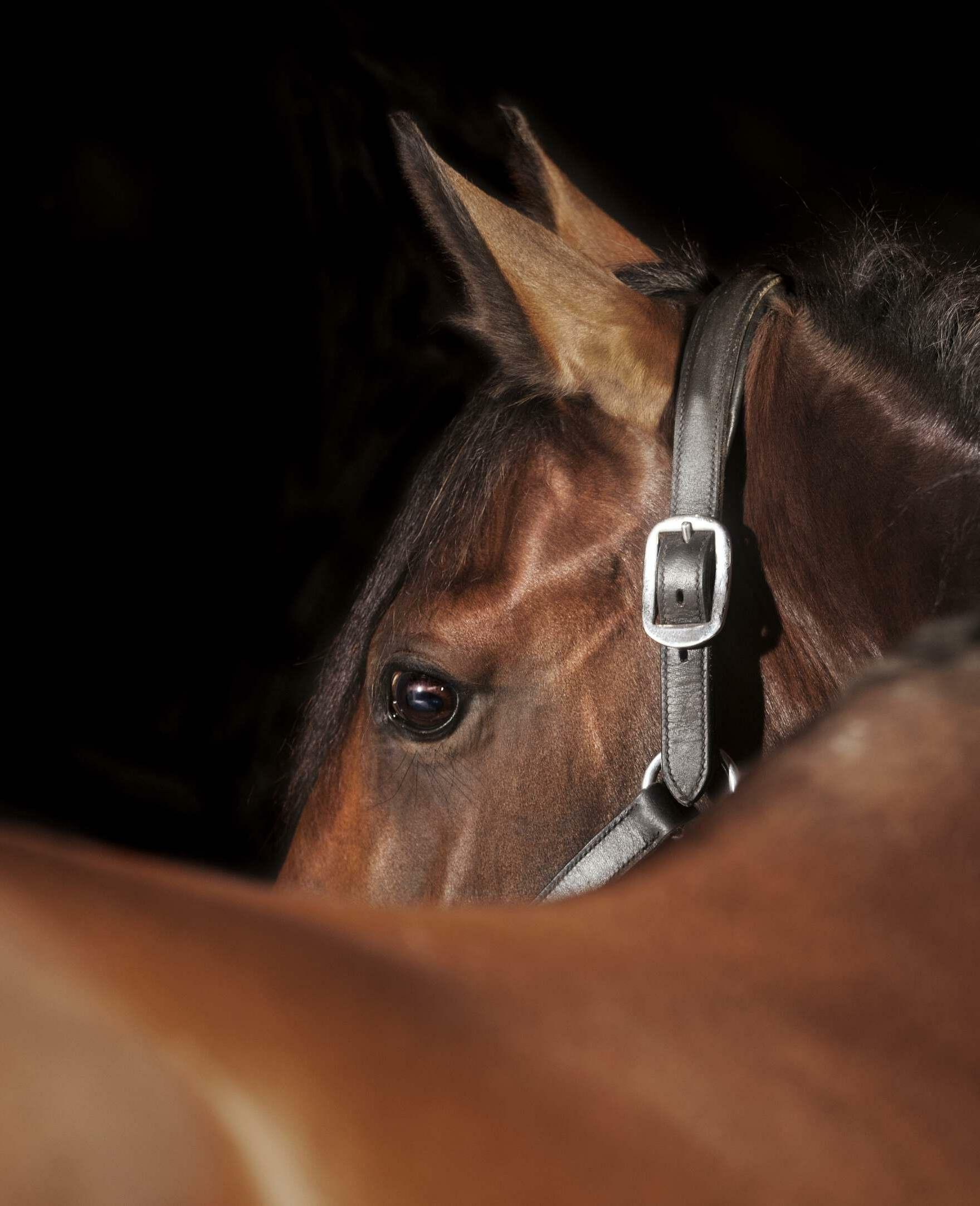

















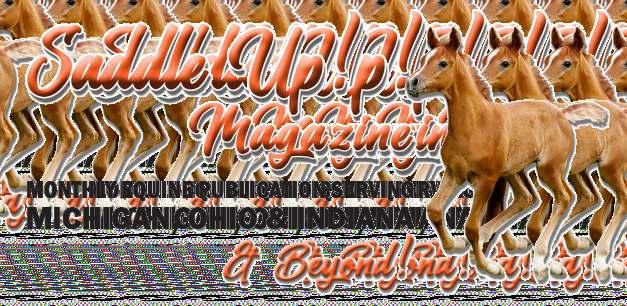

HOLLY, MI (ROSE TWP.): VACANT LAND!



39+ acres with frontage on two roads! Gently rolling, currently used for hay Build your own home and horse farm. Located on corner of Rose Center Rd., and Buckhorn Lake Rd., just west of Milford Rd. Mature trees on perimeter for privacy MLS# 20221033494.

Price Improvement $450,000!
NEW! KALKASKA, MI: 10 great acres just off M-72. Nice 2200 sq. ft. ranch home, 4 bedrooms, 2.5 baths. 30x56 garage with storage. 40x60 barn with 6 box stalls and 6 tie stalls. Offered at $379,900.

Call Kathie for more details!

Realtor

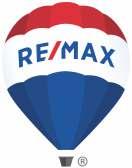

HIGHLAND HORSE FARM: 3825 N Hickory Ridge Road. Custom contemporary w/beautiful wood trim/nishes, vaulted ceilings, nished walkout basement, sauna. 3 car attached garage. 20+ rolling acres of gorgeous land, private setting, mature trees, pond. Large hip roof barn, 3 huge stalls, room for more, spacious hayloft, run-in sheds. Workshop is heated with 220 electric, ofce, and storage area Fenced paddocks/pastures. Room for indoor arena. Easy access to M59, US23, and downtown Milford. MLS#20221060563. Offered at $895,000.
COMING SOON! ANN ARBOR/SALEM TWP., MI: 2030 acres on a paved road. Beautiful, updated home, indoor arena, several outbuildings, fenced pastures and paddocks, run-in sheds. Property can be split.
Contact



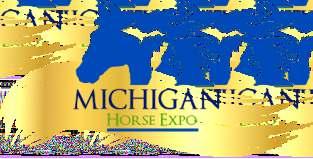


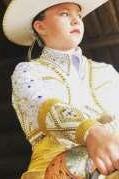














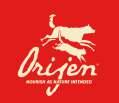






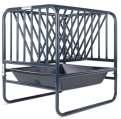
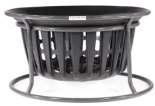



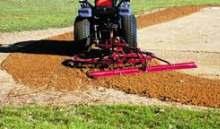
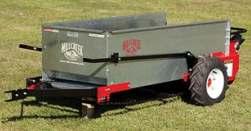
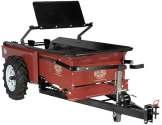


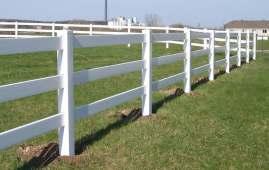
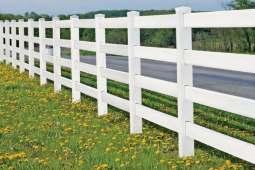

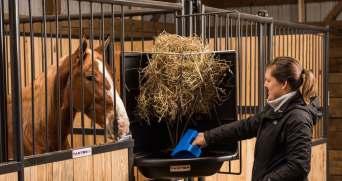

Reserve your advertising space for the...


Place your ad in BOTH Saddle Up! Magazine’s March 2023 edition AND the 2023 MI Horse Expo Program for ONE LOW RATE!
(Both distributed at the Michigan Horse Expo, March 10-12, 2023)
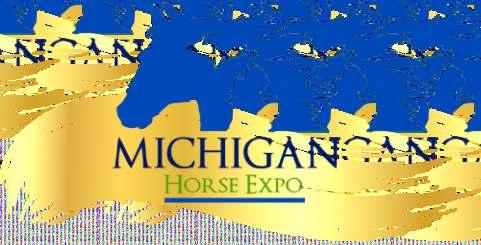

March 2023

Saddle Up! Magazine AND the MI Horse Expo Program
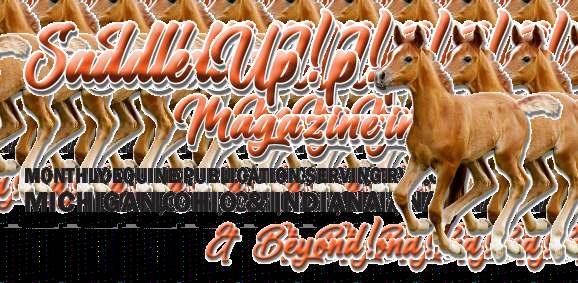
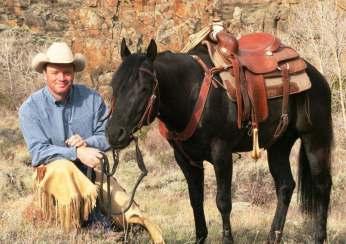
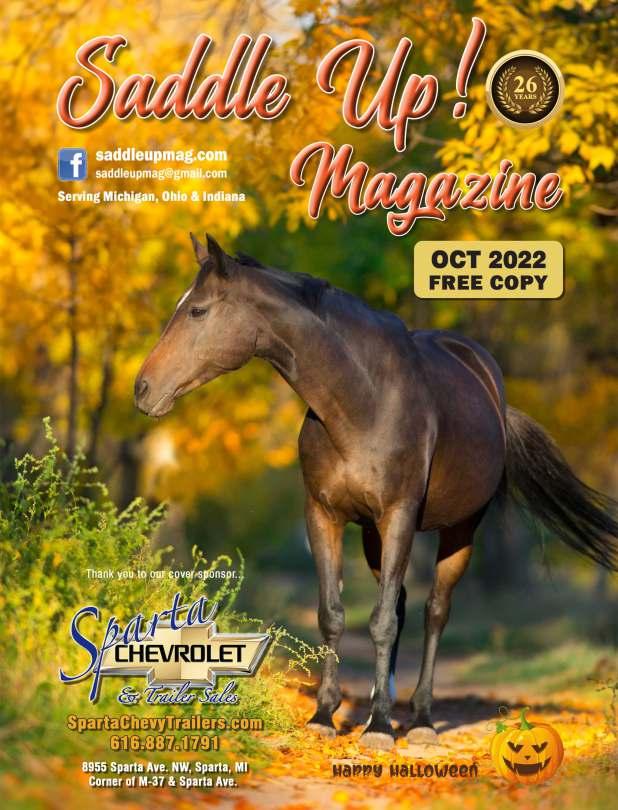
2023
(Distributed at the
Therearecurrentlyapproximately155,000horses inMichigan,basedonthe last Equine Survey (2007). While these numbers may have decreased somewhat based on the recession, the use of horses in the state has not decreased,andinfactmaybeincreasing(personalobservation).Eachofthese animalsisinneedofregularhoofcare,withtrimmingrequiredevery6-8weeks andshoes(forthosewhoareshod)requiredonasimilarschedule.
Theoldadage“nofoot,nohorse”holds,inthatahorsewithoutregularhoof carebyaknowledgeableprofessional,isunlikelytobeofusetoitshumancaretakers.Further,mosthorsemenandwomenwouldratherhiresomeoneknowledgeabletodothisworkthantodoitthemselves.Finally,well-trainedfarriershavethepotentialtomakea decent living, as evidenced by “An American Farriers Journal survey in 2012 found that the national average annual salary for full-time farriers in the U.S. was reported to be $92,623 per year and for parttimers, $21,153. This amount is an average and varies according to experience level, training, etc.” (TheFarriersGuide.com)
TheproblemcurrentlyfacingthehorseindustryintheMidwestisthatthereiscurrentlynoreputablemeans by which to consistently produce well-trained farriers. Michigan residents wishing to pursue this line of work,haveneededtoleavethestateforextendedperiodsoftime.Untilnow.

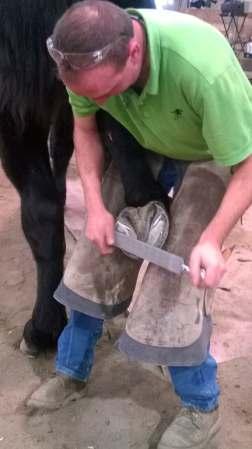
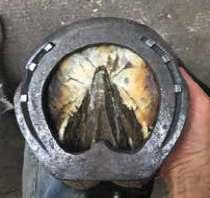
Michigan State University offers the MSU Farrier School: Thisisa12or24-weekprogram,housedon theMSUHorseTeachingandResearchCenter,andwillbeledbyMSUalum,DavidHallock,CJF,ASF Students in the program will receive both hands-on and classroom-based instruction in hoof and farrier science, equine anatomy and physiology, basic welding, and business. The class runs8hoursperday,withtheintentionofproducingindividualspoisedtobewell trained,professionalfarrierstoservetheequineindustry
April 3-June 23, June 26-September 15 and September 18-December 8
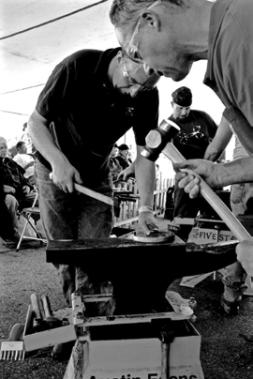
Jim
1130 Tipsico Lake Rd.
SADDLE & LEATHER REPAIR

TACK SHOP • HAT CLEANING & SHAPING
NEW & USED SADDLES
American Big Horn, Fabtron & Silver Royal Saddles NEW & USED WESTERN AND ENGLISH TACK
Hosted by the Wayne County 4-H Horse & Pony

Saturday,March 4, 2023
11am-2pm | $3Admission
Wayne County Fairgrounds 10871 Quirk Rd., Belleville, MI 48111
SpecialConsideration forCommercialVendors

•
MONTHLY BOARD INCLUDES:
•
Wayne County Horse and Pony
Check out our drone video: www.ivoryfarm.com
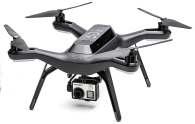
• 110’x60’ indoor arena w/mirrors
• 140’x80’ outdoor sand arena
• 150 well-groomed acres for trail riding
• Well-insulated barn, stays comfortable year round

•
•
•
Fence Installation
Pole Barns
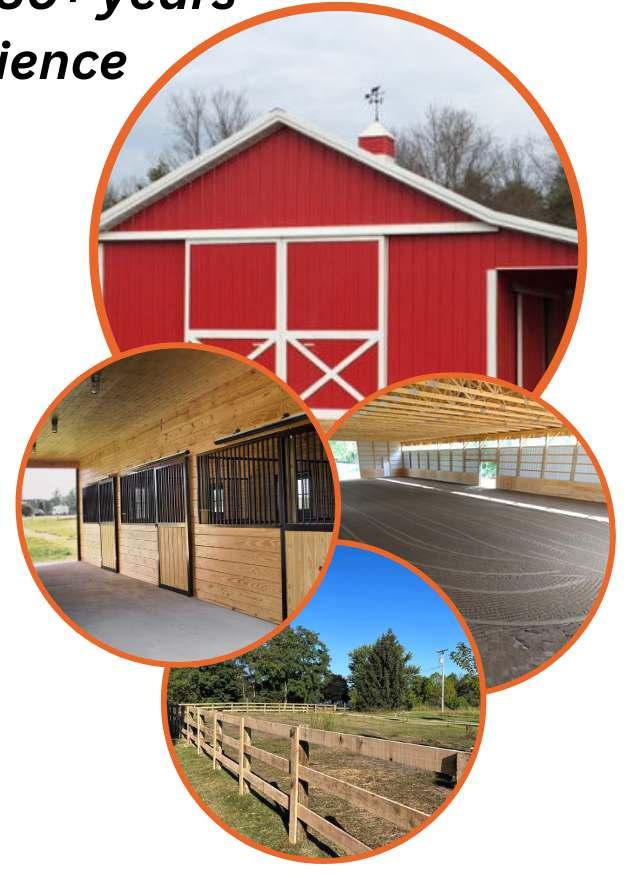
Automatic Waterers
Stalls & Stall Floors
Arenas &Arena Footings
Mud Solutions
Electrical & Water Lines
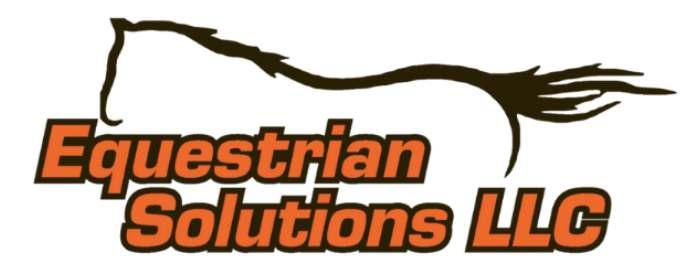
Sand, Gravel &Topsoil
Wood, Wire, Vinyl, Electric and Gates

Nationwide Shipping
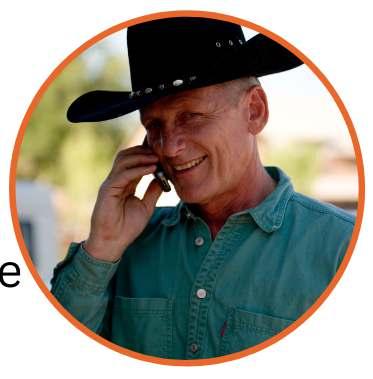


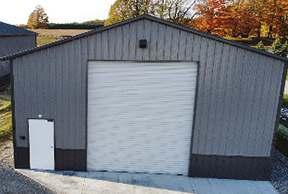


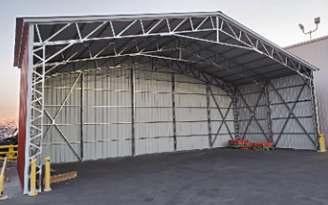
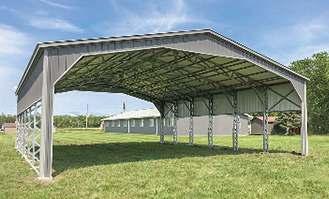
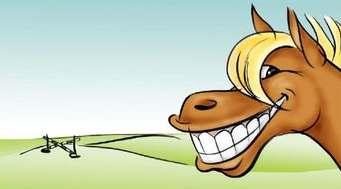





8:30 am Start | $40.00 Stall | $8.00 Class MSU Pavilion, 4301 Farm Lane, East Lansing, MI
All proceeds to benefit Michigan Youth Horse Programs and the MSU Horse Judging Team
Join us for an interactive horse show where the judges wear microphones and give on-the-spot feedback to exhibitors!
No ribbons or points will be awarded for class placing; the feedback is your reward!
DIVISIONS: Open, Adult, Youth: 14-19, 13-8, 5-7
CLASSES INCLUDE:
• Fine Horse Showmanship
• Open Showmanship
• Cloverbud Showmanship
• Fine Horse Hunter Pleasure
• Open Hunter Pleasure
• Adult Hunt Seat Pleasure Walk-Trot
• Youth Hunt Seat Pleasure Walk-Trot
• Open Hunt Seat Equitation
• Cloverbud English Equitation
• Adult Hunt Seat Equitation Walk-Trot
• Youth Hunt Seat Equitation Walk-Trot
• Adult Walk-Trot English Pleasure (Saddle Seat)
• Youth Walk-Trot English Pleasure (Saddle Seat)
• Open English (Saddle Seat)
• Open Saddle Seat Equitation
• Walk Trot Saddle Seat Equitation
• Fine Horse Western Pleasure
• Open Western Pleasure
• Adult Western Pleasure Walk-Trot
• Youth Western Pleasure Walk-Trot
• Open Western Horsemanship
• Cloverbud Western Horsemanship
• Adult Western Horsemanship Walk-Trot
• Youth Western Horsemanship Walk-Trot
Horses may arrive AFTER 5:00 P.M. on Friday, April 14th, 2023
• An Approved Michigan 4-H Horse Judges Seminar
• Event open to all, not just 4-H members!
• ASTM/SEI approved helmets are required in all youth Hunt/Saddle Seat classes.
• Negative Coggins in last 12 months required.
• No stallions allowed at this event!
• Show clothes are optional.
• Class entries will close at 11:00 a.m. on the 14th.
• No refunds will be issued after 4/06/23.
• ONLY PREPAID STALL RESERVATIONS WILL BE ACCEPTED. A limited number of stalls are available. You must have a stall, no showing out of trailer! All horse stalls must use bedding.
To reserve a stall, please send a check payable to “MSU” to:
Hairy Horse Show – Attn: Carla 474 S. Shaw Lane, Room 1287 East Lansing, MI 48824
Stalls may also be reserved with credit card online at: https://commerce.cashnet.com/msu_3645
Cloverbud Policy (age 5-7 as of 1/1/2023). ALL 4-H Cloverbud members must wear ASTM- or SEI- approved helmets.
• Age 5 (6, or 7): May be involved with equine on a halter and lead. They MUST be directly accompanied one-on-one by a parent, guardian or adult volunteer who is on foot holding the animal’s halter or lead to maximize safety
• Age 6 (or 7): May ride a horse unaccompanied, but only at the walk. Adult volunteers should be in the ring with Cloverbud at all times.
• Age 7 only: May participate in walk-trot events with adult volunteers in the ring at all times. 4-H Cloverbud members must wear ASTM- or SEI-approved helmets for all 4-H Cloverbud horse experiences.
• No Stallions allowed at this event. • “Fine Horse” Classes open only to Arabian, Half-Arabian, Morgan, Saddlebred, etc.
• Reserve early, a limited number of stalls are available. You must have a stall, no showing out of trailer.
• No refunds will be available after 4/06/23.
Questions? Email Carla McLachlan: CarlaM@msu.edu

Credit card payments and stall reservations available at: https://commerce.cashnet.com/msu_3645
Department of Animal Science
be doing? Well, I plan to maintain an active role in BTRA. I will continue to write this column for Saddle Up! Magazine, and will continue to serve as Editor for our newsletter. I’ll still be busy, but just a little less busy than before.
January issue of Saddle Up! Magazine, please take note, I was wrong with the fees – Single is $20 and Family is $25. Sorry for any confusion.
See you on the trails!

As this column is being written it’s a sunny day in mid-January, 2023. Sure, it’s not warm but after all, this is the middle of winter. Having said that, this has been a tolerable winter We’ve had some snow but nothing that has stayed very long and no freezing rain that has paralyzed us. Compared to the severe weather that many other parts of the country have experienced, we’ve dodged the bullet. As result, the trails at Brighton are still getting some use and our Facebook has included posts and pictures of hardy riders enjoying their outings.
The BTRA Board of Directors recently held our first meeting of the year and we accomplished quite a bit We worked on our schedule of events for 2023 and it will be published shortly Our newsletter, The Hoofbeats Gazette, will be going out soon and it will include the schedule and our membership renewal form.
We decided that we again want to host a display table at the Michigan Horse Council Expo in March and look forward to holding our annual banquet in April, which we cohost with the Pinckney Trail Riders Association. Our first organized ride and picnic, along with our annual meeting, is scheduled for May

And now, a personal note: I have served as President of the Brighton Trail Riders Association for a number of years, have enjoyed it immensely, and feel that I have been of significant benefit to our organization. However, the time has come for me to “hang up my spurs” and depart from that office At our recent Board meeting, I formally retired and a new President was quickly appointed. Penny Wilson will now be leading BTRA Penny has been a major asset to our organization for years. She has served as our Board Secretary, has helped organize numerous events, has contributed articles to our newsletter, and the list goes on. And, to top all that, she is on the Board of Directors of the Michigan Horse Council and serves as Treasurer. So, she will not only be serving our organization but the state’s equestrian community as well. What will I
If our weather doesn’t turn nasty, the trails at Brighton will continue to welcome you and hey, it’s just a few more months before warm weather returns to Michigan. You’re all welcome to come visit us.
Mark DelaneyHello Trail Riders! The warm weather we've been lucky to have has brought many winter riders out to the Park. The trails are open year round so come and enjoy everything Fort Custer has to offer! Serene streams, lake views, woods and prairie sections beg for the company of you and your equine friend. The campground is also open, though the water at the Park won't be turned on until April. There is a pitcher pump at the trailhead/campground.
All good things new for 2023 are in the works. A plan for corrals with covers is being decided on for a few sites. Also, funds have been marked for a storage garage at the DNR headquarters for FCHFA to store our growing supply of equipment that is used to maintain the 20+ miles of trails everyone enjoys. Please remember to send your dues to help support our improvements for 2023 and the future.
Our next board meeting will be held at the Scotts Community Center in Scotts, MI. Everyone is welcome to attend and hear about the plans for this season at the Park. We will have our annual fundraisers with the Spring and Fall Equestrian Campouts at the beautiful Whitford Lake Event Area. Please go to our website at https://www.fchfa.org/ for information about the special campouts and the calendar of events for ride/potlucks throughout the riding season. Any other questions can be directed to Nancy at 269967-3613. If you are joining or renewing your membership with the handy form in the
The Indiana Miniature Equine Club offers shows at the Hendricks County Fairgrounds in Danville Indiana for miniature horses (both registered and grade) and we welcome you to join us! Our show fees are very reasonable, and the facility is an allweather arena and barn atmosphere. Whether you are a first-time show participant, or a seasoned exhibitor, our show bill has something for you, and we would love for you to join us. We also host an AMHA Hoosier Gold sanctioned show in May and have some of the top miniatures in the country compete at this double-judged AMHA show. For more information on IMEC events for 2023, visit our website at www.imecnews.com or call IMEC President, Joyse Banister at 317-727-5153 or email her at Banfour@yahoo.com
We hope you will join us in 2023!

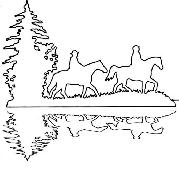
Our 2023 Event dates are:
Forbidden Trails Ride - Saturday, June 10. Chili Cook Off - Saturday, October 7.
Please Note: We are struggling with new Facebook "Meta" solutions for our page –which is not letting us create events. please go to our website for more information and registration forms.
www.ioniahorsetrailsassociation.org
We are planning a workbee for March or April, depending on how weather plays out. Our goal is to install corrals on two more
INDIANA MINIATURE EQUINE CLUB FORT CUSTER HORSE FRIENDS ASSOC.campsites, so...if you have a preference where you'd like them installed, or a preference where you Do Not want corrals installed, please let us know
We have plotted out the path for Phase 2 of the Ionia Confidence Course. Previous plans had been to build in 2023. We have decided keep the path mowed this year so riders can travel it and pack the soil before we build obstacles Riders are welcome to start using the path to go from day staging to the Phase 1 course. The path will pick up from the trail just across the road from day staging, then take the first right (presently it is marked by pink ribbons in sets of two –stay between the ribbons). Trail staff will keep the trail brush hogged so you can easily find the path next season.
After our annual meeting of 2022, we have 2 available seats on our board, so if you'd like to contribute a bit of time and be part of the improvements at Ionia, please reach out to any board member, or tag us at Ionia Horse Trails - IHTA on Facebook, or simply show up at a meeting. That would be great!
When reserving online, remember your first click is on the “Equestrian” tab on the right side of the first page, then you can select our horse camp.
Hi, trail riders! If you haven’t already, please take a few minutes to sign up for your yearly MSPTRA Membership! Join and pay online, or print the membership form and mail it in. Our fees have not gone up and we appreciate the support!
The Michigan Horse Expo is coming up soon in March. We plan on sharing a table with the Kensington and Proud Lake Trail Riders Associations. Stop by and say ‘Hello’!
Remember to mark your calendars for our fall ride which will take place on Sunday, October 22, 2023. We look forward to a great turnout like last year!
Recently, we have received a last minute inquiry for taking over the riding stables facility at the park. Fingers crossed that this one is successful! If you or anyone you know that might be interested, please contact Traci at: sincockt@michigan.gov
MI FOXTROTTING HORSE ASSOCIATION
THREE DAY PARKING
1) Normal Day Staging; 2) Go past the day staging parking lot to the “Barn Lot” on the same side of the road; 3) There is also a new option to access the west end of the park more easily! It is still signed as the X Country Ski Trail, just before the beach entrance (on the opposite side of the road) when entering the park. Park staff enlarged the parking area to hold four or five horse size rigs, but this is not a parking area suitable for BIG rigs. The drive entry is not wide, and the turn around area is not huge. If your rig is more than 30 feet or you lack backing skills, this may not be a good option. Please park like you expect the lot to be full when you come back. Leave room for others and plan for all rigs to be able to exit safely
If you encounter a situation on the trails, please let the park staff know as soon as you can by calling 616.527.3750. Let us know if you think we can be of help. We all work together as best as we can to keep the trails clear. You can ask questions or report trail issues on our Facebook page: Ionia Horse Trails - IHTA
We would not want this great facility to be left unused.
Please remember that there is NO hunting at Maybury State Park. Another great reason to ride in our park during the winter months!
Check out all the new updates to the website at www.mayburytrailriders.org
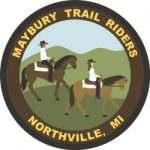
Continue to follow us on Facebook for updates on the trails, events and general news going on in the park. Feel free to post pictures from your rides!
Happy Trails! ~ Mary NaderAnnouncing the 2022 Versatility Challenge winners: For the Under Saddle division (adult) Georgi Carleton on Joey earned the most points and Carrie Carpenter was the high point-earner for the Ultimate Horseman Division (adult). There were no entries in the Not Under Saddle Division for Adult or Youth. Congratulations to both Georgi and Carrie!! The MFHA is proud of all of the rest of the members who participated and accomplished a variety of activities as well. Registrations are now being accepted for the 2023 Versatility Challenge. Read the rules on our website and see the different ways in which you can start learning and doing things with your horse. Yes, you can do lots of different activities during the cold winter months and get credit for them. You will get alot accomplished with your horse and earn prizes along the way This program is motivating and fun! Go to the Activities section of michiganfoxtrottinghorse.com to read about the three challenges for Adult and Youth and find the registration forms. Once your registration form is received, you will be invited to join the private 2023 Versatility Facebook group where you will post your activities and points which will help you qualify for quarterly and year-end awards. The high point awards are usually embroidered jackets or can be a speciallydesigned belt buckle.
New and renewing MFHA memberships are being accepted now Meet new friends with Fox Trotters! Learn how to train and gait better. We do lots of things together, such as educational clinics with known clinicians, camping and trail rides and showing. Go to the michiganfoxtrottinghorse.com website and click on the Membership Application button to print your form. Your support will provide needed funds to help us to promote the Fox Trotter breed, as well as to assist in educating people about this breed, teach proper gaiting and support the variety of activities that can be done with them. Fox Trotters are rock stars in versatility! Plus your membership qualifies you for discounts at our various clinics and with our
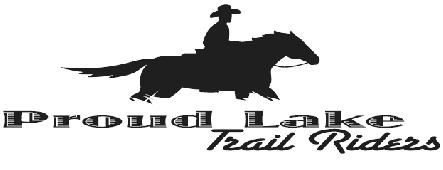
sponsors (Levi Beechy-reduced clinic fee, Chuck Fanslow-reduced cost breeding fee, Jackson's Western Store-discount and others). More member discounts are always being added.
In the winter, some of our members take their horses and go south to Florida or to Arizona to escape the Michigan snow and cold, but they still stay in contact via Zoom for our monthly meetings. Once a member, no matter where you live, you can attend similarly to learn about MFTs and all that they can do, as well as network with other owners while the weather in Michigan is preventing most of us from riding.
Your MFTHBA membership qualifies you to become an important member voting for officers and the Region 8 representative who brings our concerns to the monthly MFTHBA meetings. You can participate in MFTHBA-sponsored seminars, clinics, programs and events and become qualified for discount pricing at Stateline Tack and other businesses, as well as access to the online Registry Database (a $95 value). You will receive the online MFTHBA Journal each month and the annual printed Celebration catalog too.
Our upcoming clinics are as follows:
March 18 & 19 Obstacle Clinic with Susan Williams at Morning View Farm in Ionia, MI. Beginner Cow Clinic at the Flowers Ranch will be April 1 and the Levi Beechy Horsemanship clinic is set for April 15 & 16 at Morning View Farm in Ionia, MI.
The Great Lakes National Trail Ride is scheduled for July 7-9 at the Horseman's Camp at the Waterloo State Recreation Area in Chelsea,MI.
As more clinics and associated costs are finalized, they will be announced here, on our website and on our Facebook page.
The MFHA 501c3 committee submitted the application in January, which will allow us to become a federal non-profit association. Now we wait for the “yay” or “nay” answer from the Federal Government on whether we qualify.
We are the Michigan affiliate of the Missouri Fox Trotter Horse Breed Association (mfthba.com) based in Ava, MO.
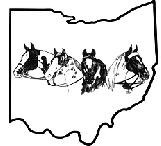
Our mission is to promote MFTs and to encourage the breeding and training of them, as well as to help their owners learn to
enjoy their horses more through educational clinics, trail rides and discussion. Remember the motto: To Ride one is to Own one.
By Marilyn ManninoFor 2023, PtHAO dates and locations are as follows (pending National approval)
March 31-April 2, Spring Fling, Garwood Arena, Columbiana
May 19-22, Summer Warm Up, Fulton County Fairgrounds, Waseon
July 21-23, Lots O’Spots, University of Findlay, Findlay
July 27-28, East Central Pinto Jubilee, Henry County Saddle Club, New Castle, IN

The MTRA Board of directors met in January 2023. Jeff Baltzer president, gave an update on progress of the Cheboygan trail camp. As it will not be ready for the first June ride, that ride will start in Stoney Creek trail camp.
The MDNR has assessed that the Luzerne boardwalk will need replacing It is currently closed to equestrian traffic and an alternate route will be used until repairs are made.
MTRA will be at the Michigan Horse Council Expo in March in the trails area. R. Lee attends the MHC meetings as our representative. Our annual meeting and banquet is set for March in Clare, MI. This will include election of officers.
Options for our spring work bee were discussed, the March meeting will finalize the location. The board agreed to support a mileage incentive program for members. Information will be in the next newsletter and will be available on the website. Also patches will be again given to members who cross exclusively on the blue trail.
Our website has a new face – thanks to member Karma Kruch! Check it out at: https://www.mtra.org/ Rides for this year are available on our website.
Hope to see you on the trail!
We are actively planning our awards banquet to celebrate the 2022 show season. The banquet will be held on February 11th, 2023 at the Thirsty Pony in Sandusky, Ohio. The club will be holding a silent auction and is asking any members to please bring any donations to it.
August 25-27, Summer Sizzler, Champion Center, Springfield
September 22-24 Fall Wind Up, Garwood Arena, Columbiana
If you are looking for a new place to show, come to Ohio Pinto. There is no better horse show family to join. If you would like more information about PtHAO, check out our website at: https://www.ohiopinto.net/ and Facebook page. Can’t wait to see everyone either at the Banquet or the first show! Again, contact any of your officers, directors with any questions. May your barns be spotted and horses be warm.
Hello Everyone! Our annual banquet is back. We would love to see you on Friday, February 10th at Bakers in Milford. We will be serving a full course meal and will of course have our famous Silent Auction. It is $30 per person. Please reserve and pay in advance. We hope to see you there!
As of right now, the green trail is fully separated from the bikers trails. Please make sure to stay only on the equestrian trails. They are marked. Proud Lake Trail Riders has been working diligently with the DNR to separate our trails from the bikers. A huge hurdle was just accomplished in that the location of the new bike trails has been decided and agreed upon. The next step will be cutting out the trails. Once the trails are separated, there will be signs up stating what are horse trails and what are bike trails. We have been working on this for the past several years and we are thrilled that the park is committed to making this happen. As of right now, the GPS maps have been sub-mitted and we
PROUD LAKE TRAIL RIDERS ASSOC.are moving forward. If you encounter bikers on the trails that are not giving the right of way to horses, please contact the DNR immediately. If you are able to get photos, please try to do so.
Remember, it is hunting season and there is hunting allowed in Proud Lake. Please wear bright colors and be visible.
If you would like to join our email list, please email me at efrusy@yahoo.com and also remember to like us on Facebook!
Stay safe and keep riding!
MICHIGAN
Snow and ice are in our lives as we wait for spring to appear around the corner. Some of us are planning our activities for the months ahead. WDAMI will again have a booth at
the Michigan Horse Expo coming up on March 10-12, 2023. If you are a WDAMI Member, we are looking for volunteers to help staff the booth. If you would be willing to help us out, please contact Suzanne Morisse at eaglehorse1@hotmail.com
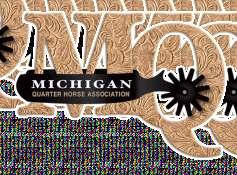
The WDAMI Board is busy putting together three educational clinics for 2023. There are two clinics planned so far The first is an Introduction to Western Dressage, Working Equitation and Trick Training Clinic, to be held on April 15 and 16 at Rach Riding Academy in Milford, MI. The Clinic will start at 9 am and will run to 5 pm both days. The Working Equitation instructors will be Karen Rach-St Clair and Alex Tyson. The instructors for Western Dressage will be Dorothy Mueller, Sue Hughes, and Suzanne Morisse. And Trick Training instructors will be Suzanne Morisse and Dorothy Mueller

Our Second Clinic will include a WDAA Western Dressage Show on Friday evening June 23 followed by a Freestyle Clinic on Saturday and Sunday, June 24-25 The Clinic will feature Western Dressage Large “R” Judge Joan Williams. Joan is a WD Multiple World Champion and Supreme
Champion, a USDF bronze, silver, and gold medalist, and has earned top honors in USDF freestyle awards. The clinic will be held at the Lucky Dog Ranch in Harrisville Michigan For more information, please contact Mary Linton at 810.338.0884 or by emailing: luckydogranch.jm@gmail.com
Our quote of the month is: “Success in Dressage is the relentless execution of the basics.” (I do not know how wrote this, but I thought it was a good one!)
Don’t forgot to renew or join WDAMI and WDAA for 2023 and be part of the fastest growing equestrian sport. You can find us online at https://www.wdami.org/
Thank you for your support.
Be safe, have fun, enjoy your equine partner and exercise the act of kindness to all. Until next time ~ Suzanne Morisse, WDAMI President
MQHAEASTER EGGSTRAVAGANZA
Weds.April 5 to Sun.April 9 – 6 Judges!

MSU Pavilion, East Lansing | Contact MQHA
BLUE SKYCIRCUIT
Tues. May 16 to Sun. May 21 – 8 Judges!
MSU Pavilion, East Lansing ContactTom Powers: tripfarm@aol.com
MQHASUMMER SERIES
Thurs. May 25 to Mon. May 29 – 5 Judges!
Midland County Fairgrounds | Contact MQHA
MQHYASPARTAN SPECTACULAR
Fri. June 23 to Sun. June 25 – 4 Judges!
Ingham Co. Fairgrounds, Mason | Contact MQHA
MQHAHARBOR CLASSIC
Sun. July 2 to Sat. July 8 – 6 Judges!
WMFA, Ludington | Contact MQHA
NORTHERN MIALLNOVICE SHOW
Fri. July 21 – 1 Judge
NORTHERN MI QH SHOWS
Sat. July 22 to Sun. July 23 – 2 Judges
Midland County Fairgrounds
Contact NMQHA: Mary.short123@gmail.com
LISATERRYMEMORIAL
Thurs.August 24 to Sun.August 27
WMFA, Ludington
Contact: LisaTerryMemorial@gmail.com
MQHAFUTURITY/GREAT LKS. CLASSIC
Thurs. Sept. 14 to Sun. Sept. 17 – 6 Judges!
MSU Pavilion, East Lansing | Contact MQHA
MQHAHARVEST CLASSIC
Fri. Nov. 10 to Sun. Nov. 12 – 4 Judges!
MSU Pavilion, East Lansing | Contact MQHA
Even veterinarians sometimes have to pay other veterinarians for treatment of their personal animals.
My daughter's quarter horse was 9 years old when she became ill after their first showing at the All-American Quarter Horse Congress this past October in Columbus, Ohio. Showing in the youth 12-14 year-old, all-around events, the duo received a 1st, 3rd, and 5th placing in their classes winning several other top 10 awards. After winning the Equitation Championship Wednesday evening, we started home, leaving our mare at the show with our trainers to follow later.
On Friday morning, we received a call. Our mare was having difficulty breathing and had spiked a fever Her situation was dire, and we were advised to have her transported to Ohio State University's College of Veterinary Medicine for emergency treatment. Upon arrival, the attending veterinarians performed a tracheostomy and began administering antibiotics and throat spray She remained at the hospital for 7 days during which surgeons partially removed the granulomas on the opposing sides of both arytenoids (“kissing lesions”).
Once the swelling went down and her breathing improved, the tracheostomy tube was pulled, and she came home for rest and continued care.
Further outpatient care was performed at Michigan State University with repeated endoscopy and laser debridement over the next 3 months.
Our mare was suffering from a disease known as Arytenoid Chondritis which is an inflammatory condition of the arytenoid cartilages in adult horses. The arytenoid cartilages are paired flaps/cartilage that lie at the opening to the trachea (windpipe).
For an asymptomatic horse, during inspiration, these flaps spread apart to let as much air as possible to pass through the trachea and into the lungs. With affected horses, the arytenoids are swollen and often have granulomas which diminish the air flow
Clinical signs don't usually appear until the later stages of the disease. Those signs include coughing, whistling, roaring, and feed and water material coming out of the horse's nostrils. Our mare didn't exhibit any warning signs until she had difficulty breathing
Cases can range from mild to severe. In mild cases, systemic antiinflammatory medication and antibiotics are combined with antiinflammatory medication delivered as a throat spray
In moderate to severe cases, a tracheostomy is performed to bypass the larynx for improved airflow. This tube allows the larynx to rest decreasing swelling.
In severe cases, an Arytenoidectomy is performed under general anesthesia with a small incision behind the horse's mandible to remove the affected cartilage so the horse can breathe without the tracheostomy tube.
This condition is most prevalent in Thoroughbreds as a progressive, inflammatory condition. Most cases are unilateral but can spread to both sides.
The precise cause of Arytenoid Chondritis is unknown but is suspected to be secondary to mucosal trauma which then leads to a viral or bacterial infection that can involve the arytenoid cartilage.
Since race horses normally race on dirt or sand, they inhale matter during their fast work triggering respiratory infections which can spread to the surrounding cartilage. The condition is very painful and can lead to laryngeal paresis or weakness.

The infection can cause excessive granulation tissue that can project into the tracheal lumen and cause partial obstruction resulting in high-pitched breathing sounds.
Diagnosis is through an upper respiratory airway endoscopy Cartilage calcification can be seen in chronic cases through x-rays, and ultrasounds.
A majority of cases are found in young (aged 2-4 years) Thoroughbreds around sale time. Most of those discovered are mild, acute, and not associated with clinical signs. These cases usually respond to broad-spectrum antibiotic treatment, followed by oral sulfonamide medication for several weeks. A daily throat spray of antibiotics and/or anti-inflammatory agents may be prescribed delivered through a nasopharyngeal catheter
Progress is monitored by serial endoscopic examinations until the lesions are healed. Horses that produce excessive granulation tissue often require surgical laser resection of the tissue. Our mare has undergone 3 rounds of laser ablation.
In severe cases exhibiting cartilage deformation, or that are nonresponsive to treatments, a partial arytenoidectomy may be required. In race horses, this procedure may limit or end their racing careers. Most horses will still be useful in less strenuous careers.
Our mare continues to slowly improve. We are hopeful that she will be able to resume her previous level of competition, and the prognosis seems favorable at this time.
We remain unclear about the cause and no horse is exempt from this disease. Despite our best efforts, illness can happen.
Dr. Joanna Bronson graduated from MSU College of Veterinary Medicine in 2000 at the top of her class. Following graduation, she worked as an intern at a large equine referral practice in Cleveland, OH, specializing in lameness, surgery, and racetrack medicine. In 2005, she opened Bronson Veterinary Services in Coldwater, MI. What started as an ambulatory only practice, quickly grew to a fullservice equine and small animal hospital and surgical center The now three doctor practice provides medical, surgical, reproductive, and preventative care services for Branch County and the surrounding area.
For more information please visit: http://bronsonvetservices.com/
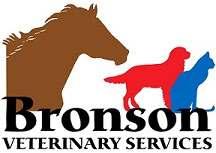

For every good reason to manage a horse in a particular fashion there seems to be an equally compelling argument to not take that approach. Take haynets, for example. Haynets can be beneficial in some management scenarios, yet a new study suggests they may increase a horse's risk of neck or back injury.*
Advantages of Haynets: Feeding horses from haynets reportedly slows feed intake. This allows horses to consume forage for longer periods of time than when forage is spread on the ground. Prolonging forage intake mimics the time spent on pasture, where horses typically allocate 12-18 hours a day to grazing and foraging. Thus, using haynets to extend feeding times more closely matches natural grazing behavior of horses.
“Extended feeding or foraging means the horses' stomachs are not empty for extended periods of time, which is important for reducing the likelihood of developing equine squamous gastric disease or ESGD,” said Ashley Fowler, Ph.D., a nutritionist for KER.

“Forage creates a 'splash guard' so acidic gastric fluid doesn't damage the wall of the stomach in the less protected upper or squamous region of the stomach,” she added.
Horses at risk of ESGD, such as those on high-grain diets or those fed only two or three meals a day, would therefore benefit from haynets to ensure the presence of that splash guard. These horses would also benefit from a gastric buffer such as the one contained in research-proven digestive health supplements developed by Kentucky Equine Research.
According to Fowler, managing appropriate body condition in horses also helps reduce the risk of insulin resistance, laminitis, and equine metabolic syndrome.
“For horses that are overweight, decreasing the amount of forage offered may be necessary to encourage weight loss. Haynets can help slow the rate of consumption when owners need to restrict forage intake, which can help avoid stereotypies, such as wood chewing and bedding consumption,” Fowler added.
Disadvantages of Haynets: Suspending the haynet at head level does not mimic the natural position of the head and neck during pasture grazing. When horses consistently eat with their heads elevated, the nasal passages do not drain, potentially putting horses at risk for respiratory infections. Further, hay is often dusty and having horses bury their muzzles in haynets may induce an asthma flare-up.
“A new study measured the pull forces that occur when horses grab forage from small-hole haynets. Pull pressures were measured by attaching the haynet to a pull gauge, which measured the forces in Newtons,” explained Fowler.
Interesting findings in that study included:
• Pull forces were higher for hay hung in double or layered haynets compared to a single net;
• Horses pulled harder when the haynet was hung at a lower position. In the low position, the haynet was about an inch above the withers; in the high position, it was a foot above the withers (closer to face level); and
• Pull forces differed depending on whether hay or haylage (with a higher moisture content) was offered. Horses pulled harder when offered haylage.
“These pressures may cause some wear on the dental and musculoskeletal system,” wrote the researchers, but further study is needed to further define the pull pressures on neck and back pain while using haynets.
“Haynets are great for horses that need to increase the amount of time spent eating, but this study suggests that perhaps haynet height and hole size should be considered to reduce potential strain on the musculoskeletal system,” concluded Fowler.
*Hodgson, S., P. Bennett-Skinner, B. Lancaster, S. Upton, P. Harris, and A.D Ellis. 2022. Posture and pull pressure by horses when eating hay or haylage from a hay net hung at various positions. Animals (Basel) 12(21):2999.
For more information visit: https://ker.com/
Ayla is a spotted Leopard Appaloosa mare. Can you find her in this issue of Saddle Up! Magazine?

Each month, we hide a smaller image of Ayla within the pages of Saddle Up! Magazine. When you find her, mail us a letter or email us with the page that you “spotted” her on and you will be entered in our random drawing to win a check for $30.00!
Email: saddleupmag@gmail.com
Address: 8415 Hogan Rd., Fenton, MI 48430
Deadline: The 20th of the current month
Contest for ages 14 & under only. Include your age and address so we may mail your winnings, if you win.
Our January 2023 Contest Winner is...
Contest Rules: Ages 14 & under only. One entry per month, per person. All correct answers will be entered in our random drawing
Rearing: the act of a horse putting all of their weight on the hind legs, while hoisting their front legs, both off the ground and into the air, assuming a more human like, vertical body stance.

This is the stuff of movies and TV glory: Roy Rogers and Trigger The Black Stallion... Spirit, Stallion of the Cimarron. Every little girl who loves horses has been bombarded with images of majestic, rearing horses.
My new horse Pepper was blessed by her old owner Corie with this end-all, be-all of trick training She could, amazingly, rear on command! How awesome was that?! Not only were all of my horse dreams coming true, but I had at my disposal the thing of dreams: the rear!
Corie had mentioned that Pepper reared on command when we bought her, but taught me how to do it two months later. “To rear,” she instructed, “you act like you are going to back up, pull back with the reins and squeeze with both legs...” Her voice trailed off as she picked her eyes up to look at me in the saddle on Pepper to make sure I was paying attention. I was. My eyes were fixed on hers and I nodded in agreement. She continued, “But you need to raise your hands higher up to the sky in a slightly jerky motion. You can repeat it if she doesn’t do it. Once she rears just lean forward in a two-point like a jump, grab some mane, and hang on till she comes down.”
I nodded and she motioned for me to try I sat back, pulled slightly on the reins but was careful to elevate their position to a more vertical, upward pull and squeezed with my legs. To my surprise...it worked! Pepper’s weight shifted backward and I felt her front legs reach toward the clouds. I leaned forward to stay in good balance with her, if I didn’t, I would have fallen backwards over her hindquarters. We hung in the air for a few moments, my lips pressed against her coarse mane, and I thanked the Lord above for all the magic in the world such as this. It was over almost as quickly as it began, and we descended, literally, back down to earth.
“Good job!” Corie praised, “Just like that! You have it!” I had it. “Now,” Corie warned, her voice dropping down a bit, a serious tone breaking the magical spell, “You have to be careful not to do this too much. For one, she could lose the cue, or on the opposite end, since it is so close to backing up, she might rear when you don’t want her to. So only every once in a while.” She looked at me with a look that said: now I know you are not going to listen but I have to say it anyway, because I am the adult. “I understand.” But what is ‘every once in a while?’ Once a week? Once a month? Few times a year? Who knows? I just knew it couldn’t be every day. Fair enough, magic can’t happen every day, then maybe it wouldn’t be magic.
Our magic did find itself quite useful when on a road ride, my new friends Liz, April and I came across a rogue band of boys our age. Boys of eleven or so can be the cruelest creatures, testing boundaries and strength on unsuspecting victims. Worse if they are in a group. Doubly worse if they are on bikes. And on bikes
these terrorists were, as they sped around the corner, looking for trouble. They came flying directly at us, peddling hard at full speed, leaning down into their bikes to keep their momentum, locking eyes on us girls with an evil glint in their eyes. We were in a terrifying game of chicken, only we wouldn’t be able to move our horses fast enough, and it didn’t look like they were slowing down. Almost instinctively, Liz and April moved their horses closer to Pepper and I, sandwiching me in between them, but in doing so creating a wall of horse flesh that the boys were bound to hit. Not anticipating this, the boys slammed on their brakes and jerked their handlebars hard to the right, sending a spray of gravel and dirt into the horses. Our steeds didn’t like this very much and jerked their heads up and shied away from the rocks to the left. We were spooked too, we didn’t know what the boys would do, or how our horses would react. The ringleader boy seemed to sense that his actions had caused some fear on our part and then began to change course and circle the bikes around us, getting awfully close to our horses’ hind legs in the process.
Don’t they know they could get kicked doing this? I should warn them...on second thought, maybe I shouldn’t and one good kick will solve this problem. “STOP!” I yelled as the leader boy crossed in front of me. Surprisingly, he did stop, turning his bike away from his tight horse circle and looping back around to face us. He had this amused look on his face that I spoke up. How dare I defy him?
“Aww...you don’t like us being here?” he taunted. “Obviously, not” April snapped back. “Well, you see, I do like being here. I hate these stupid horses, and you stupid girls that ride them!” “Hey!” Liz squeaked out, she didn’t know what to say or do really, but she was certainly offended.
The leader looked us up and down, he had a nasty smug grin and a mop of black hair that almost covered his eyes. I didn’t really pay attention to the other boys because they just mimicked what the leader did. They were harmless sheep, unless their wolf called them to battle.
“You know since you don’t like it so much, I think I will just throw some rocks at these stupid horses!” He spat at us, and started looking to the side of the road for a suitable weapon.
THAT WAS IT. I had enough of this bully and his antics, and I was going to put a stop to it. “Oh, yeah?” I asked him, “Well watch out, then!” Not the best comeback, but I was enraged. I stepped
Rearing: A Saga (continued)
Pepper out of our horse shield toward the leader, and marched Pepper right next to his bike. He wasn’t anticipating this and recoiled a little bit at my forwardness. I did the only logical thing that an eleven-year-old girl with a trick trained horse could do in this situation. I asked her to rear. Right in his face.
Pepper, glorious Pepper, came through for me and reared as high as she ever had, towering over that bratty boy and put the fear he gave us, right back into him. “Ahhh!” He screamed, not knowing what was happening, but clearly seeing that my horse was a lot bigger than him at the moment. He scrambled to get his bike out from under Pepper and her hooves, which were easily over his dirty, moppy little head. I couldn’t really see his face, but I like to think regret washed over it as he realized what he had done. A novel concept, actions and consequences. He had poked the bear Or in this case, the girl.
Pepper landed from her rear a little sooner than I wanted her to, we needed to be a force to be reckoned with. I asked her to go up again, and she did. Pepper was not normally this compliant but I think she enjoyed the revenge.
This really threw off the leader, who at this point now abdicated his position as king of the road and turned his bike around, screamed and told the others, “She is crazy! Let’s get out of here!” They all turned and followed, peddling as fast as they could, looking over their shoulders as they did to make sure I didn’t follow
“AND DON’T EVER COME BACK!” I yelled after them, with a huge grin on my face. When I turned back towards our group their mouths were hung open in disbelief. Did I really do that? “Well, I don’t think they will be back” Liz said, breaking the stunned silence. “That was awesome!” April said with a smile. I did something right in the eyes of my new horse friends! For once in my life, I got to be the hero! “Let’s go just in case they change their minds and come back for more” I said, still a little worried about them, and my rage starting to wane.
We told every single soul that we could what happened, and how Pepper saved the day by rearing The adults around us were impressed but a little worried. At least we weren’t victims, and maybe those boys would straighten out a little by meeting a 1,000-pound animal up close and very personal.
Adult Reflections – No regrets on this one.

I gained a real sense of agency from taking charge in a difficult situation. I wasn’t just going to take the threatened assault against me, I was going to fight back. I’ve been thankful ever since, that this ordeal showed me my strength. Sadly, I never got a picture of Pepper and I rearing. This was also a rare moment of unity with Pepper As our adventures continued, she didn’t rear when I needed her to, and did when I didn’t. This will just be one glorious moment when my rage and Pepper’s snarky nature came together at the right time, and sent me high, high into the stuff of magic.
Alex Tyson is a C.H.A certified riding instructor in Southeast Michigan. Alex has had a very multifaceted background, having experience in hunter-jumper, barrel racing, competitive trail, breaking wild mustangs, and working equitation. She is a top 3 finisher at the 2021 Thoroughbred Makeover in competitive trail, won the Intermediate A division at the only international working equitation event in the U.S., the Cross Nations Cup, in 2022 and is the 2022 USAWE (USA Working Equitation) Eastern Zones Reserve Champion at Intermediate A.
If you would like to order Alex’s book, Many Runaway Horses, it is available for purchase on Amazon.com, or you can contact Alex directly at: sunriseequineservices@gmail.com
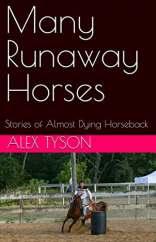
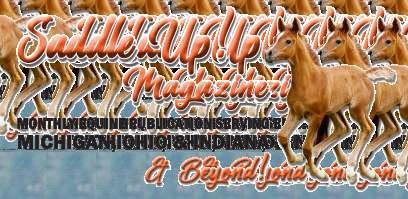
1)
2) LIST your
 By Dr. Joanna Bronson | http://bronsonvetservices.com/
By Dr. Joanna Bronson | http://bronsonvetservices.com/
Being trapped indoors during inclement weather is bad for everyone. Fresh air is necessary for good health. If the weather prohibits the usual outdoor exercise, dogs can get sick during colder months.
The most common illnesses include kennel cough, frostbite, hypothermia, pneumonia, arthritic flares, and injuries.
Proactive vaccinations for common illnesses and the practice of keeping pets away from crowded areas where dogs congregate help diminish the spread of disease.
Thankfully, most kennels, boarding and grooming facilities now require client proof of vaccination.
Some breeds and individuals tolerate the cold better than others. Factors to consider include: coat length, thickness, and texture, age, amount of body fat, activity level, and overall health.
Very young and very old pets, small pets, hairless varieties, those suffering from chronic diseases, (heart, arthritis, kidney, diabetes, and Cushing's Disease) are more likely to experience difficulty keeping warm.
Hypothermia (lowered core body temperature) can happen when pets are exposed to extreme cold for an extended time period, especially if their fur and skin remain wet.
Suspect hypothermia if the dog appears pale, is shivering, and lethargic. In extreme cases, the dog will stop shivering and becomes increasingly quiet. This stage can easily move into a dangerous comatose state.
If a pet is suffering from hypothermia, this is a RED ALERT situation. Call your veterinarian. Meanwhile, slowly begin rewarming the dog by wrapping him in warm blankets. Place a hot water bottle wrapped in a towel on his abdomen. This will help his vital organs reheat. Offer warm not hot water to drink.
Frostbite freezes and kills skin cells. It attacks the paws, nose, ear tips, and tail after exposure to extreme cold temperatures. The pet's skin will appear pale, bluish-white or gray and it will feel much colder and firmer than the surrounding skin.
This is also a RED ALERT situation. In the meantime, try warming the frostbitten areas with warm, moist towels, changing them often as they cool. Make sure the towels are not hot to avoid burns. Do not rub the frostbitten area to avoid doing damage to the tissue. As circulation returns, the skin will begin to redden.
Unfortunately, the products that make our walks, steps, and driveways safer is very toxic to dogs. Poisoning from anti-freeze, icemelt, and salt is very common during the winter months.
It only takes a few drops of anti-freeze to kill a small dog, puppy, cat, or kitten. Its sweet smell attracts pets, so even the smallest spill or leak needs to be safely removed. Pets don't have to ingest these products, they can absorb them on their paws and then lick them.
Drinking from puddles is also dangerous, as chemicals designed to melt ice can be toxic when ingested.
As a further warning, all household and outside chemicals should be kept out of a pet's reach.
Protective foot wear can help keep pets safe when walking on sidewalks and roadways.
Pets should never be left outside without adequate shelter and access to clean water and food. If the temperature is below freezing, no pet should be left outside.
A raised bed or sleeping spot should stand a few inches off the ground. Wood shavings, straw, along with a door flap to keep out the wind are sufficient for cold weather dogs unless the temperature drops below freezing Blankets are not recommended since they can get wet and freeze.
For indoor pets, insulated coats and water-resistant booties can make trips outside more bearable for most dogs.
All dogs should be taken outside for elimination to avoid health issues such as bladder infections, unless trained to use potty pads.
Heated beds and or pads can be helpful for sick or aging pets, but pets should never be left alone or have direct contact with a heated appliance, especially for pets that like to chew
Some breeds can actually overheat even in a house. Pugs, and other brachycephalic breeds, long-haired dogs and those with thick coats should not be subjected to temperatures over 75 degrees inside. Routine grooming should continue during the winter months and routine bathing is also recommended, though dogs should always be thoroughly dry before allowed outside.
Regular brushing helps keep on top of any hidden lumps, bumps, or sores that a winter coat may hide. For safety, when dogs come inside, check for snow or mud balls that might be lodged between their pads and for any skin cracks and cuts.
Dr. Joanna Bronson graduated from MSU College of Veterinary Medicine in 2000 at the top of her class. Following graduation, she worked as an intern at a large equine referral practice in Cleveland, OH, specializing in lameness, surgery, and racetrack medicine. In 2005, she opened Bronson Veterinary Services in Coldwater, MI. What started as an ambulatory only practice, quickly grew to a fullservice equine and small animal hospital and surgical center. The now three doctor practice provides medical, surgical, reproductive, and preventative care services for Branch County and the surrounding area. Dr Bronson is committed to promoting responsible pet ownership, preventative health-care and health-related educational opportunities for her clients.
For more information please visit: http://bronsonvetservices.com/

Initially, I have my students practice with the whip without the horse. This way you can learn how to use the whip without confusing the horse or the horse ignoring the whip because it's not used properly.
The first thing to remember is that the whip is to be held in front or to the side of the handler, not behind your body.
Here's how to use the whip in order to encourage forward motion:
1.The first step is to raise the whip's end, keeping it positioned behind the horse. The horse sees the whip and moves forward.
2.If you need more response, swing the whip toward the horse's hindquarter Keep your whip level as you swing the tassel.
3.If you need yet more encouragement to get the horse to move forward, swing the whip with more action and make the whip movement faster
4.If the horse needs more encouragement, make a snapping noise with the popper at the end of your whip. To do this, you must move your wrist forward and back very quickly, keeping the whip level, creating the popper to snap and make a noise.
5.If your horse needs more, swing the whip and touch the horse. Practice these steps without the horse, and when you are confident with the whip, use it with your lungeing lesson.
Let's lunge your horse! My Golden Rule when lungeing a horse:
Do different size circles then go straight and start a circle at another area. Do NOT lunge the same size circle over and over, making your lungeing session a monotonous drill. Horses hate that!
All horses will fall in more than fall out. Falling in is recognized by the horse's head positioned to the outside and the horse is leaning in, speeding up his legs to keep his balance.
The only way to get your horse to straighten himself is to make the circle larger, making the horse move out. I use the lunge line and toss it toward his head to bring the head straight or inward and then send the horse out on the circle. Do not pull the head to come in, as the horse will just come in more and not improve his balance!

Here's how to recognize a horse falling out. The horse will start to pull you, his head comes in too far, and his body swings out. The horse will slow down, break gaits, and the hind legs will lose power from swinging out. To improve this falling out posture you have to send the horse forward! This will straighten him out.
Remember where on the circle (or other configuration) your horse falls in or out. Improve the horse's forward motion before he gets to this place by asking him to move out to improve falling in and forward for falling out!
Change gaits often. Change the size of the circle. Go from a circle to a straight line, keeping the triangle configuration*. Go from a straight line to a circle. This is a great exercise for improving self
carriage. (*To form the triangle: Stay parallel to the horse and make one side of the triangle with your lunge line. The horse is another side of the triangle, and the whip is the third side of the triangle. You are in the middle of the triangle.)
Your voice is very important in influencing how the horse responds to lungeing. Horses don't know words, but they know tones of words. A deep tone is a command. The longer you stretch out the tone of the word, the more you want the horse to hear you and stay smooth and relaxed. A short word could be for the horse that is laid back or loses his attention easy A soft or mellow voice rewards the horse after a proper response to signals, and then helps him relax. Again, a word with a long, drawn out annunciation is very meaningful to the horse. A short word is also important if his concentration is on you! I use the words Walk, Trot, Canter, Whoa. If you over-use your words, your horse will ignore you.
Remember, where the horse's ears are focused on is where his eyes are looking If you want a responsive action from the horse, you have to read where he is looking before you give him a cue!
This is something for when your horse lunges very, very well and you are confident that you can keep your horse in control. I like controlled play for when I take a horse to a show, where they are animated because of a new surrounding I always work on my In Hand and Lungeing when I go to a new place with my horses. This is the way I will ask for play. I always walk a circle first when lungeing When the horse is ready for play time, I lunge to the left to get some exercise. When I go to the right, I walk and trot for a while. Then I take the lunge line into two hands and make some sounds, or clap my hands. When the horse starts to run, buck, toss the head, jump up and down, I have my two hands on the lunge line, lean back to anticipate him trying to pull me, and use a give-and-take motion on the lunge line. I do not hold the line steady, as the horse can brace against me and could capture control from me.
I will ask him to play at least three or four times. When the horse shows me that he is not playing any more, I go back to the walk. I will do a short lunge to the right to get him to be obedient and responsive on command before I end my lungeing lesson.
Cyril and Lynn offer clinics throughout the country and abroad as well as online coaching. Join them on their teaching tours or their Palm Equestrian Academy European Journeys. Please visit www.lynnpalm.com or follow on Facebook, Twitter, and Instagram.






The idea of a barn fire is one of the most horrific things that a horse owner can think of It is something that none of us hope to see in our lifetime, but sadly, if a tragedy like this has affected you or someone you know, it is something that will never be forgotten. Considering the damage and loss that a fire can cause in mere minutes, it should be on the forefront of our minds when it comes to fire prevention and safety in the barn. No matter how big or small the facility, there are many things that can be done to help minimize cases of fire and help us to be prepared in case one does break out when every precious moment counts. Here are a few simple things to consider when thinking about fire plans and prevention for your barn.
Make A Plan – Preparedness for any situation starts with a good plan and fire is no exception. It is important to work through a plan for what should be done in case of a fire that is tailored to your facility There are plenty of opportunities to seek out fire safety training at the local level and if your facility is larger, you may want to invite a walk-thru to help spot any problem areas. Even a simple map with exits noted and locations of fire extinguishers can be a huge timesaver in case of an emergency. Everyone who frequents your barn – family, clients, barn help – should at least know the basic fire plan for the barn.
Fire Extinguishers – While the hope is that you would never need to use one, would you know how to in a critical situation? Having fire extinguishers in the barn is a great start but knowing how to use them is key They should be easily accessible, up-to-date, and the appropriate size for the area. Check them annually and go over instructions for use so that they can be quickly deployed if needed.
Ban Smoking – Any open flame in or near a barn can be a hazard but preventing that flame by banning smoking on the property is an easy step to take to prevent needless fires. There are too many things around a barn that when hit with a poorly extinguished cigarette could cause irrevocable damage. Make sure to post ‘No Smoking’ signs around the barn as a reminder for any visitors.
Egress Options – Having multiple exits in a barn is important. Access doors from each stall to the exterior of the barn can be very helpful in removing animals to safety when every second counts. Make sure all doors can be opened easily without obstruction and that hardware and latches are high quality and in good repair Thoughtfully consider where equipment and vehicles are parked so that exterior barn exits are never blocked should animals need to be removed quickly or fire trucks should need to gain access. In a busy barn, marking exits is a necessity

Up-To-Date Electric – Ensure electricity in the barn is up-to-date and up to code. Don't think that just because you flip a switch and it works that it is safe. In new construction, seek out safety options that can be installed from the beginning In older barns, it may be time to have an electrician come out and update. Always use a licensed electrician and make sure that they have a good understanding of how the flow and function of your barn works on a dayto-day basis to provide you with the best safety options for your barn and horses.
Multiple Electric Outlets – Additional outlets are safer because they reduce the need for extension cords or power strips. Anytime there is a reduction in the use of extension cords, it helps mitigate the risk of fire. Never string multiple cords together and if you must
use an extension cord, make sure that it is suitable for agricultural use. It is also a good idea to unplug any items from an outlet that are not being used. Covers over the outlets prevent dirt, dust and other contaminants from getting in.
Look for Damage and Keep it Clean – When doing daily chores, always be on the lookout for any damaged cords or wires and replace them immediately. Keeping electrical cords out of the reach of horses is important, but also keeping an eye out for damage caused by rodents is imperative. Wiring that is encased in metal conduit can help prevent issues with chewed wires. Keeping the barn clean by removing dust and cobwebs on a regular basis can help prevent fire and allow you to see if there is any damage that you may not otherwise notice.
Store Flammables Away from the Barn – Many of the items that we use daily in horse keeping can be very flammable. Whenever possible, store hay and bedding in separate buildings away from the barn. Hay and bedding should be checked regularly to make sure that no heat is being generated which can lead to spontaneous combustion. Manure piles can also be a source of heat, so they should be far enough away from the barn and monitored closely. Keep flammable liquids and equipment that utilizes them properly stored in a separate building away from the barn.
Seasonal Considerations – In the winter, using electric buckets or tank heaters is critical to ensuring that horses have a consistent source of water during freezing temperatures. It is important to inspect these devices regularly to make sure that they are in proper working order. Look for items that have safety shut offs and make sure that you are following the manufacturer's instructions for usage. There are some options like thermal buckets that don't require electricity at all and can be a great choice for mitigating risk.
While fire is something that horse owners never want to think about happening in their barn, taking the time to think about all the ways fire can be prevented should be at the forefront of your mind. With a few easy adjustments you can make your barn safer every day. These are just a few basic things to consider, there are many more ways to help prevent fire in your barn. Reach out to your local fire department for more information and resources.
Lisa Kiley is a horse enthusiast who has worked in the equine industry and shown horses for many years. She is also a proud member of the Cashman's Horse Equipment Team in Delaware, OH. Cashman's Horse Equipment proudly provides top quality products to the equine and agricultural community, with a commitment to sourcing environmentally conscious merchandise and items made in the U.S.A
Visit: https://www.cashmans.com/ Lisa and Cotton
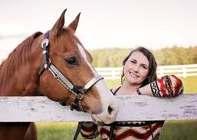
CANTER Thoroughbreds Now Available! Visit us online: www.canterusa.org/Michigan, Horses For Sale. Visit CANTER Michigan on Facebook. Celebrating over 20 years of successfully transitioning more than 25,000 Thoroughbreds.

CANTER Michigan
Janet Salisbury, President Commerce Twp., MI (Oakland) (S-08/23)
Email: cantermichigan@canterusa.org
www.canterusa.org/michigan
Fastrack Animal Supplements – Keep your horses healthier Healthier hooves, shinier hair coats, and more. With 16 of the top 17 horses in the National Barrel Race finals using Fastrack, why aren’t you using it?
FASTRACK ANIMAL SUPPLEMENTS

To get started, call Ray 989.550.1999 (PS-12/23)
or message: 888.266.0014, ext. 8778
Nelson Automatic Waterers – A Nelson preferred contractor! Installed from start to finish. Many units to choose from. Maintenance free, time saving, energy efficient. Repairs and directional boring available. Horse fence installation.
R. BARNES CO., INC. – Rick Barnes Howell, MI (Livingston) (PS-12/23) 313.407.7373 cell.
Nelson Automatic Waterers – A Nelson preferred provider for repair and maintenance of your Nelson Automatic Waterers. Excellent response time. Most parts in stock. Honest, ethical and reliable. Will travel. www.WaterFixLLC.com
WATERFIX COMPANY – John Guthrie
Dexter, MI (Washtenaw) (S-01/23) 313.418.5676 or 734.475.8898
Beautiful Boarding and training facility for all breeds and disciplines. Green horses and firsttime riders welcome! Offering western dressage and short-term intensive training programs.
IRONWOOD FARM – Dorothy 313.215.1944
Leonard, MI (Oakland) (S-03/23)
Email: ironwoodfarmdressage@yahoo.com
www.ironwoodfarmequestrian.com
Boarding in Hastings, MI (South East Grand Rapids area). Quiet, country with 165 acres of trails. Inside and outside board, large pastures w/shelters. 60x160 indoor riding arena. Lessons available. Horses for sale.
EVERVIEW FARM – 269. 948.9570
Hastings, MI (Barry) (S-04/23)
Email: lee@everviewfarm.net
www.everviewfarm.net
LaRose Equine Dentistry, LLC: Specializing in equine dental care without the risk of sedation. Doug LaRose has 25 years of experience as an EqDT and has partnered with thousands of horse owners across Michigan to promote excellence in equine dental care. Find us on Facebook.
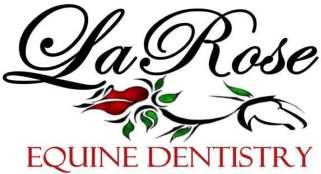
LAROSE EQUINE DENTISTRY (PS-09/23) 989.430.8595 or 989.285.5557
www.LaRoseEquineDentistry.com
www.facebook.com/LaRoseEquineDentistry
Offering Full Service Boarding, Training and Dressage lessons. Relax and enjoy your horse in a quiet, adult atmosphere. Please visit our website at www.EleventhHourFarm.com, or find us on Facebook.com/11th Hour Farm
ELEVENTH HOUR FARM – 248.755-2083
Holly, MI (Oakland) (PS-11/23)
Email: info@eleventhhourfarm.com
OPEN 24/7 – Quality Boarding Includes tack locker, heated rooms, 12% pellet grain, hay, large pastures and daily turnout. We have trails, two indoor arenas, and one outdoor arena with lights.
HARDY FARMS – 313.363.2243 (call or text)
7215 N. Latson Rd., Howell, MI (M-03/23)
Email: info@hardysfarm.com
http://www.hardysfarm.com/
Find us on Facebook: Hardy Farms

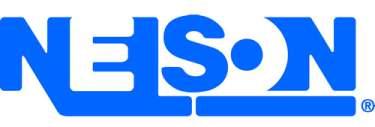
TUTHILL FARMS, SOUTH LYON offers stalls and pasture board on over 20 acres. Miles of trail riding on the farm. Good location for trailering to nearby parks. Quality hay, outdoor arena, round pen, dry lot, heated tack room and restroom.
TUTHILL FARMS – Sandra Tuthill 248.207.6201
South Lyon, MI (Livingston) (S-12/23)
Email: sandra@tuthillfarms.com
Online: www.tuthillfarms.com
TWIN ELM TRAINING: Full service training and boarding facility. Friendly, professional barn on 40 acres, indoor and outdoor arena, wash rack, tack lockers, 1/2 mile track, trailer parking. Resident trainer/instructor: hunt seat (on the flat), saddle seat, western, and western dressage.
TWIN ELM TRAINING, LLC – 248.697.6503
Northville, MI (Washtenaw) (S-05/23)
http://www.twinelmtraining.com/
FREE Exam and Evaluation. Equine Dentistry, using hand tools. Also offering Equine Sports Massage Therapy, Gait Analysis, Trigger Point Manipulation, plus Red Light and Heat Therapy
SPRING EQUINE SERVICES (PS-01/23)
Lauren Springstube, EqDT CESMT 248.842.7821
Email: springequineservices@gmail.com
Facebook: Spring Equine Services
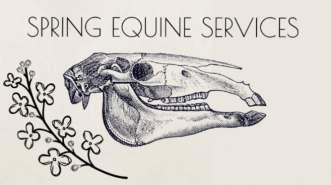
EQUINE MASSAGE
Horses In Harmony Therapeutic Massage and Bodywork, since 2001. Offering massage, Reiki, Craniosacral Therapy and Red/Infrared Light Therapy. Facebook: HorsesInHarmonyCESMT, Instagram: @horsesinharmony.cesmt
HORSES IN HARMONY – Candy 810.923.5003
Howell, MI (Livingston) (M-03/23)
Email: horsesinharmony@att.net
horsesinharmony0.wixsite.com/horsesinharmony
FARRIER SERVICE
Hoof Care Matters! Over 25 years of experience in trimming, shoeing and corrective shoeing. Ask about teeth floating too! Serving Oakland County and surrounding counties.
JOHN PETERSON FARRIER – 248.303.6498
Milford, MI (Oakland) (S-07/23)
Written by Master Farrier, Brian D Gnegy, so horse owner’s, farriers and veterinarians can find solutions to lameness problems. Fact filled, written by designer of equine Orthotics & Prosthetics.
Shoo-Fly Insect Control – Automatically get rid of flies, mosquitoes, and spiders. Safe and inexpensive to use. Used throughout Michigan for over 30 years. We Install or Do-It-Yourself
Bill Tressler – 517.927.8089
Webberville, MI (Ingham) (S-08/23)
Email: Bill@radiant-energy.com
Horse & Cattle Hay: Square bales 60-65 lbs., 4x5 net wrapped round bales 850-950 lbs. From Northern Michigan, delivered by semi loads or in enclosed trailers. Custom hauling available. Timothy, clover, alfalfa. Minimum order for delivery Find us on Facebook.

MURPHY FARMS LLC – Mike Murphy
517.206.7377 | www.murphyfarm.net
Fowlerville, MI (Livingston) (PS-03/23)
Horse Farm Manager Needed – 12 stalls, plus numerous pastures and paddocks. Housing is a possibility. Close to US-23 and I-96.
Call Ina (eena) 517.294.0328 - no text messages Howell, MI (Livingston) (M-03/23)
FIBER LUXE – Horse blanket cleaning and repair. Free pick-up and delivery. (M-06/23)
FIBER LUXE 1.800.334.1994
Email: flblankets@comcast.net
THE LAUNDRY BARN horse blanket laundry. Offering blanket washing, repairs, waterproofing. 25 plus years of commercial laundry experience. Professional products and equipment used.
THE LAUNDRY BARN – 248.274.6070 (text ok)
NEW LARGE COMMERCIAL FACILITY:
169 W. Clarkston Rd., Lake Orion, MI 48362
Email: laundrybarn@gmail.com
REGISTER QUARTER HORSE MARE: Buckskin, 3 years old. Sweet disposition. Handled daily
Text for more information: 989.325.8680
Millington, MI (Tuscola) (M-04/23)
MINIATURES/PONIES – Varity available: Pintos, Appaloosas, stallions at stud, mares, and colts. New foals on the way! Call for details.
DANSYN ARABIANS & MINIS
Donna Rogers – 989.667.4028
Bay City, MI (Tuscola) (M-04/23)
USED 201O 16 FT CORN PRO – Step up stock trailer Great condition.
Text for more information: 989.325.8680 Millington, MI (Tuscola) (M-04/23)
Equestrian Wear Sewing Patterns: Full line of western show clothing patterns; jackets, shirts, vests, boleros, chaps. Child through plus sizes. Printed or PDF format.
Pegg Johnson – 810.346.2305
SHOW CLOTHES UNLIMITED (S-11/23)
Email: showclothes01@hotmail.com
Online: www.showclothesunlimited.com
For All Your Equestrian Needs! Used Western, English, Dressage, Saddleseat and Harness. Consignments welcome! Tuesday-Friday noon-6pm, Saturday 10am-4pm. Sundays/evenings by appt.
SPARTA CHEVROLET & TRAILER SALES – We specialize in horse trailers: full living quarters with slide-out, to smaller two horse bumper pulls. Cimarron, Lakota, Sundowner and Trails West. Great selection and even better prices!
SPARTA CHEVROLET & TRAILER SALES
Call Jim Kelly 616.887.3456
8955 Sparta Ave. NW, Sparta, MI (M-06/23)
Email: spartatrailers@gmail.com
Online: www.spartachevytrailers.com

PET & FARM SITTING
K & J HORSE AND FARM SITTING – Need to get away, call K & J! Also offering custom equestrian art, furniture, fly bonnets, wellness clips for furry horses needing quick shed off. (M-03/23)
K & J HORSE AND FARM SITTING
Call or text Kim Kingstad – 248.667.2185
52 yr old manufacturing company expanding Looking for individuals that have experience in agriculture and animal health, who are interested in building there own business using Christian principles. (S-12/23)
Please leave background/contact information:
888.266.0014, ext. 8778
SADDLE REPAIR & LEATHER WORK. New and used saddles and tack bought and sold. Complete Leather Repair available. Many years of experience. Hours: Mon-Fri 9am-6pm, Sat. 9:30-5pm.
JIM'S QUALITY SADDLE CO.
Jim Moule – 248.887.4829
Milford, MI (Oakland) (S-08/23)
DIY Sewing Kits! Horsemanship Shirts, Western and Bolero vests. Kit includes: fabric, interfacing, thread, zipper, with or without a pattern. Just cut and assemble. Call us for all your sewing needs! Pegg Johnson – 810.346.2305
SHOW CLOTHES UNLIMITED (M-11/23)
Email: showclothes01@hotmail.com
Online: www.showclothesunlimited.com
BRIGHTSIDE USED TACK & CONSIGNMENTS
Call 989.277.8917 or on Facebook: (M-03/23)
Brightside LLC Used Tack & Consignments
8555 Monroe Rd., Durand, MI (1/4 mile off I-69)
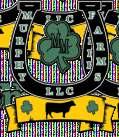
Halfway between Lansing & Flint, MI
Beautiful boarding and training facility for all breeds and disciplines. Green horses and firsttime riders welcome! Offering western dressage and short-term intensive training programs.
IRONWOOD FARM – Dorothy 313.215.1944
Leonard, MI (Oakland) (S-03/23)
Email: ironwoodfarmdressage@yahoo.com
www.ironwoodfarmequestrian.com
INSTRUCTION: Dressage, Jumping, Eventing. After a lull in clinics/lessons after Covid, clinics will be scheduled mostly on Saturdays/Sundays. Lessons will be scheduled Thurs, Sat & Sun. Some evenings & private scheduling is available.
CROWTHORNE FARM
Lynnda Marie Malone – 248.535.8954
Hartland, MI (Livingston) (M-01/23)
Email: crowthornefarm@comcast.net
The Traveling Trainer offers training, lessons, consulting at your facility or mine. Over 30 years of experience. Bachelor’s degree in Equestrian Studies from the University of Findlay Also quality horses for sale. Find us on Facebook, or on Instagram: #thehappyhorsehouse, or visit our website at www.thetravelingtrainer.net
THE TRAVELING TRAINER LLC
Ann-Marie Lavallee – 810.796.3510
Dryden, MI (Lapeer) (S-08/23)
Email: thetravelingtrainer3@gmail.com
SORRY, CLASSIFIED ADS ARE NO LONGER FREE
One Year Classified Subscriptions (includes first class mail magazine)
$60 Text Only | $120 Text & Logo
30 words text, 4 lines of contact details
Classified Deadline: 18th of month
Email: saddleupmag@gmail.com
Email: saddleupmag@gmail.com
1) Added to our online calendar with flyer
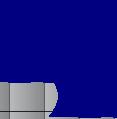
2) Listed in Saddle Up! Magazine’s online/printed editions up to 3 months
3) Shared to both Tri-State Horse Shows, Saddle Up! Magazine Facebook pages


Post your shows to...
Tri-State Horse Shows
Our public Facebook group. Then we’ll share them to:
Our official Facebook page
When you email us your horse shows & events, we to do GUARANTEE the following at to you or your horse association/trail riding group! NO COST
1) ADD your show(s) to our NEW Google online calendar with your flyer or showbill.
2) LIST your show(s) in Saddle Up! Magazine’s appropriate PRINTED & ONLINE editions.
3) SHARE your show(s) to both Tri-State Horse Shows Facebook group and Saddle Up! Magazine Facebook page.
All you need to do is email us your flyer or showbill (JPG or PDF), and we will do the rest for you... GUARANTEED!
Email us at: saddleupmag@gmail.com

4-H IS A COMMUNITY FOR ALL KIDS – In 4-H, we believe in the power of young people. We see that every child has valuable strengths and real influence to improve the world around us.
https://www.canr.msu.edu/4h/
You're invited to attend the 17th annual celebration of MI 4-H Youth Development at the Spartan Women's basketball game, Sunday, February 12th. Admission is free for MSU Extension 4-H youth and their families, MSU Extension and 4-H volunteers and their families, MSU Extension partners and stakeholders, as well as MSU Extension professionals and their families. If you register after January 23, tickets will be held at the MSU Extension / 4-H “Will Call” located at the Harrison/ Kalamazoo entrance. Game time is 3pm, but as in year's past, there will be games and activities on the concourse of the Breslin before the game, at 1:30 p.m. The Ishbia Gate (formerly SW Harrison Gate), will open for those who wish to take part in those activities. Parking is $5 in Ramp 7, across the street from the Breslin Center on Harrison, the Kellogg Center parking ramp, as well as the Spartan Stadium lots. Participants are asked to wear green and white 4-H and/or Extension apparel if possible If you have questions, contact Laura Potter-Niesen by emailing her at: potterla@msu.edu
Are you ready to leave for college or be out on your own? Are you prepared to do adult tasks and have skills to be successful? MI State University Extension's Adulting 101 programs help teenagers and young adults demystify the obscure reality of being an “adult” through engaging educational sessions. Each free session is packed full of important life skills and tools necessary to live independently! Insurance 101 will be the topic for Thursday, February 23rd at 6pm. Have you ever wondered what a deductible is... what the difference is between an HMO and PPO plan, and why knowing your outof-pocket maximum is important? Under-
standing medical insurance can be tricky! Join this session to learn the basics. On March 16th at 4pm, participants will learn all about paychecks and taxes. Understanding why and how taxes and other items are deducted from a worker's paycheck is an important step toward gaining financial knowledge. For information about Adulting 101, contact Katherine Jamieson, email: jamies13@msu.edu
Join Michigan 4-H, the MSU Department of Animal Science, and the MSU College of Veterinary Medicine for the 4-H Animal Science Career Quest on February 18th and 19th. Youth will learn about all the opportunities an animal science education can bring them, not just as an undergraduate student, but long term post-graduate, career options, and beyond! Animal Science Career Quest is open to youth ages 12-19 (as of January 1, 2023) and 4-H volunteers. Complete schedule, registration link, and fees are available at: https://www.canr.msu.edu/ events/animal-science-career-quest Activities Saturday will take place in Anthony Hall (474 South Shaw Ln, East Lansing, MI) and the MSU South Campus Animal Farms. Sunday will take place in Anthony Hall and the College of Veterinary Medicine. Free parking will be available all day Saturday and Sunday in lots 40, 41, and 43. For one day, the cost is $30, and for both days, the cost is $50. For more details, reach out to Melissa Elischer by emailing: elischer@msu.edu
Join the MI 4-H Hippology Contest on March 18th! From 8am until 5pm, participants will be able to demonstrate their experience and knowledge gained in horse judging, quiz bowl, speeches and practical horse management. Phases of the contest include a written exam, identification of items shown on slides, placing and/or identification of feedstuffs or feed tags, judging, identification stations, and
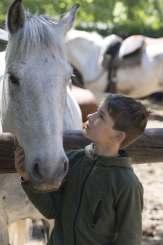
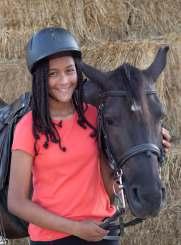

team problems. There’s opportunities for the top two senior hippology teams to go on to compete at the National 4-H level. For more information on equine events or how to get involved in MI 4-H, contact Taylor Fabus, 4-H Horse and Pony Ext. Educator, by email at tenlenta@msu.edu

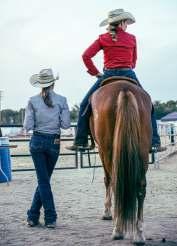
As a reminder to all that registered for Making eXtreme Counselors, MXC will be offered in person on February 25th and 26th. This overnight camp is an interactive and quick-paced training that offers innovative camp ideas to new and veteran camp counselors Counselors will earn camp counselor training hours while attending this event (no. of hours is determined by county) Check-in registration on Saturday the 25th will be open from 1pm-1:45pm and departure on Sunday the 26th will be around 3pm. In 2023, MXC participants can attend sessions on the following topics: Camp Program Planning, Teaching and Facilitation, Communication, Camp Environment, Teamwork, and Leadership. For a detailed itinerary, visit the site below: https://ohio4h.org/camp/mcx-workshop
Anyone interested in the Ohio State 4-H Horse Poster Contest must submit their posters no later than Saturday, March 4th! For any youth currently enrolled in a 4-H or FFA horse project, the Horse Poster Contest visually demonstrates 4-H and FFA equine project knowledge and should exhibit the diversity of 4-H and FFA equine projects. Mailed entries will no longer be accepted, posters must be delivered to room 222, Animal Sciences Building, 2029 Fyffe Court, Columbus, Ohio or may be submitted in person at the Communications Contest or Hippology/ Horse Bowl/Judging Clinic on Saturday
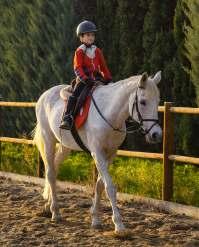
4-H IS A COMMUNITY FOR ALL KIDS – In 4-H, we believe in the power of young people. Wri�en by Lisa Skylis, in collabora�on with Cindy Couturier, editor, Saddle Up! Magazine


March 4th during contest or clinic checkins. Late entries will not be accepted. Both registration and poster must be turned in to the address provided on the official registration form. Posters will be judged/displayed in the Gilligan Complex from July 17th through July 19th. Posters may be picked up at the Ohio State Fair 4H Horse Show office the afternoon of July 19th through July 21st. For more information visit: https://ohio4h.org/events/ state-4-h-horse-poster-contest
Come one, come all to the Annual State 4H Horse Communications Contest on March 4th from 9am until 11:30am! The primary objective of the Communications Contest is to provide, in a friendly but competitive setting, an opportunity for youth enrolled in a 4-H horse project to demonstrate their communication and media skills on a specific equine or equine related topic. Youth may compete in the following categories: Public Speaking, Individual Presentation and Team Presentation. Junior and Senior contests will be held simultaneously in person on Saturday, March 4th. Presentation times will be assigned on a random basis. Registration for this event, including payment of entry fee, must be made online by February 17, 2023. No late entries will be accepted. Cost for participation is $10 for an individual and $20 for a team. As this contest determines which contestants will represent Ohio 4-H at national contests, ONLY senior 4-H members are allowed to compete in the senior division to comply with national eligibility requirements. For more details, please email Dani Seitner at: seitner.2@osu.edu
March 4th is also the Ohio 4-H Hippology/ Judging/Horse Bowl Clinic! 12:30pm4:30pm, the Clinic's topics include: Fox Hunting, Hoof Care, Draft Horse Breeds,


Respiratory Diseases, and Judging Stock, Saddle, and Hunter-Type Horses. Cost per person $5, registration/payment deadline February 17. Reach out to Dani Seitner via email at: seitner.2@osu.edu
Attend the 2023 Ohio 4-H Conference on Friday, March 11th at the Greater Columbus Convention Center, Columbus, Ohio! The Ohio 4-H Conference will bring together 4-H volunteers and teens (age 13 and older) from across Ohio. Participate in a variety of educational sessions offering something for everyone! Learn from one another to make the best better for Ohio 4-H programs. Sessions will start at 9 am on March 11th. Registration deadline is Friday, February 10th. The cost is $40. For more details, please reach out to Allen Auck by email at: auck.1@osu.edu
If you'd like more information, contact Dr. Kimberly Cole, the Ohio State Ext. Equine Specialist, email: cole.436@osu.edu
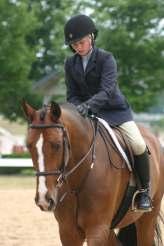
https://extension.purdue.edu/4-H/
Join the 2023 Equine Wellness Forum at Purdue, February 11th! Hosted by the Purdue College of Veterinary Medicine, from 8:30am–5pm. The purpose of the Equine Wellness Forum is to educate horse owners and equine industry professionals about current horse health issues, ranging from basic preventive health care and husbandry topics to state-of-the-art medical advancements. In-person this year and will not offer a virtual option. General registration cost is $50, walk-in registration cost is $65, cost for PVM faculty/staff/students is $25. Presenters include Purdue faculty/staff, as well as invited speakers. Share your passion for horses with Purdue University College of Veterinary Medicine! Up to 4 CE credits will be available. Tours of the
new Equine Hospital will be available after the sessions conclude at 5 p.m. For questions regarding program content, contact The Office of Lifelong Learning via email at: PVMLifelongLearning@ purdue.edu. For registration questions, please email: confreg@purdue.edu
4-H'ers in Elkhart County, you've got a busy start to 2023! Head to the Elkhart Co 4-H Fairgrounds for these meetings: 4-H Saddle Club Jr Leaders, February 5th, 6pm-8pm, 4-H Saddle Club Advisory Board, February 6th, 7pm-8pm and 4-H , Saddle Club on February 13th, 6:30pm8pm. Mark your calendars for the following 4-H Saddle Club meetings in March: 4-H Saddle Club Jr Leaders, March 5th, 6pm-8pm, 4-H Saddle Club Advisory Board, March 6th, 7pm-8pm For more information about the Elkhart 4-H Saddle Club: Ashley Holdeman 574.354.7403 or email: ashleyholdeman4h@yahoo.com
Is your family new to 4-H? Stop by the DeKalb County 4-H Orientation Session February 6th, 6pm to 7pm! This will be the first of four 4-H orientation sessions offered over the next several months. These sessions are for families that want to know more about 4-H or families enrolled in 4-H that may need more information. All sessions will take place in the Exhibit Hall, DeKalb County Fairgrounds, located at 708 S Union St, Auburn, IN. More details, call Effie 260.925.2562 or email: campb314@purdue.edu
Mini 4-H Grades K-2, Ancestor Detector Workshop is March 8th, 5:30pm-7:00pm. Harrison Co Ext Office, Corydon, IN. Work with workshop leader Mary to learn more about your family's history Class size will be limited, please call the Harrison Extension Office at 812.738.4236 or email feve@purdue.edu to save your Mini 4H'ers a spot.
It's that time of year to hit the reset button, look forward, and set new, impactful goals for yourself. We started this journey last month in my blog and podcast, Ride On with Julie Goodnight I asked you to review and reflect on the year behind us, to celebrate your triumphs, analyze your setbacks, and visualize where you want to be this time next year
This month, I want you to get serious about your goals, get them in writing, start developing your action plan, and commit to execution.
STEP ONE: Dream and Scheme – I have shared my goal-setting worksheet with you, and last month in my podcast, we did a deep dive into the concepts behind it. Print it out and use it as a guide to do the prep-work for setting your new goals. Find it online at: https://signin juliegoodnight com/articles/free-articles/juliesblog/horse-goals-or-bust-ready-set-go
Review, reflect and analyze the past year. Quantify the number of days you devoted time to your horse life in the past year (mark up a calendar and count them). How will this inform your new goals? What do you want to do more of (or less of) this year? What kind of time can you realistically dedicate to your horsemanship goals?

Print off a one-page calendar for this year and mark it up with your aspirations. Start with your inflexible commitments (work and family obligations), then identify the time you will devote to your horse life this year. Sure, life happens, and your calendar may be altered later, but you have to start somewhere to develop your plan.
Remember, an ambition written down with a date becomes a goal, a goal broken down becomes a plan, and a plan backed by action will turn your dreams into reality! This is the essence of our 9-month plan, “Horse Goals or Bust!”
STEP TWO: Picture Yourself “HERE” – “Horse Goals or Bust!” is not about having prestigious, ambitious, or life-changing goals (although we welcome them). It is about impacting your life in a meaningful way – big or small. Imagine your best self and your best horse life. Dream big, but keep it dialed into reality – honestly picture yourself “here.”
While winning a world championship might be one way to do that, it is not the only way. Sometimes big gifts come in small packages. So no matter what your goals are, it is my personal hope that you will join us on this venture.
Along the way, I will be sharing stories of other people's journeys, as well as some trials and tribulations of my own. This month, I want to share the stories of two of my students-turned-friends, Alisa and Carmalee.
Both women are experienced riders and horse owners, and although their equestrian activities are different, they have both been very ambitious in their horsemanship goals over the last 5+ years. They each have accomplished a great deal and are humble, honest, and objective about themselves.
Neither of these ladies have shied away from doing the hard work of introspection, and they are game to try almost anything if it involves learning or bettering themselves. That is why I was not surprised when they responded to my “Horse Goals or Bust!” invitation.
Alisa is from Arizona and works as the medical director in a veterinary trauma hospital – a high-pressure career that often leaves her drained of energy, which spills into her personal life. Looking
back, she doesn't think she accomplished as much with her horses last year as she had in years past. However, she values the intangible accomplishments of developing a better “feel” with horses, improving her balance through riding bareback, and increasing her confidence enough to enjoy riding unfamiliar horses. What Alisa loves most about horses is the connection and teamwork you can have with a horse when you recognize their try. But lately, with work stress, challenges in her personal life, and struggles with her horses due to death and lameness, for Alisa, horses have become a “HAVE-to,” rather than a “WANT-to.” This year, her goal setting is all about reigniting her passion for horses.
I first met Carmalee at the American Heart Association Beach Ride, when we featured her in an episode of Horse Master A tragic accident left her unable to walk, and she was sent to a therapeutic riding facility. This is where horses helped her relearn to walk – and then they taught her to fly
Fast-forward many years, Carmalee has a second career teaching riding and helping others through horse-facilitated activities. Like me, Carmalee is a numbers geek, and she took my suggestions and ran with them – marking up two calendars, analyzing what she did last year, and projecting what is possible next year She recognizes that what energizes her is helping others and actively accomplishing things. Like Alisa, she also gets fulfillment from the connection and teamwork that can be forged with horses.
Not surprisingly, Carmalee's goals for this year revolve around doing more – teaching and riding her own horses more, camping more, competing in Working Equitation, exploring different dressage styles, and preparing her younger horse for TREC (orienteering and trail obstacles). I can see already, this girl needs reining-in!
Get It In Writing – The next steps for Alisa, Carmalee, you, and me, are to take all the reflections, dreaming, and scheming, and craft meaningful goals that will guide our plans throughout the year Writing proper goals is not easy, but well worth the effort when it is done right.
• Clearly stated: Anyone could read it, understand it, and picture it.
• Measurable: It is quantifiable (not a “feeling”).
• Attainable and realistic, but pushing your envelope a little.
• What is important to YOU? Your goal does not need to be huge to have a huge impact.
It is also useful to think in terms of outcome goals and performance goals. They are different, but both are integral to your success. Outcome goals are high-altitude, big-picture plans that are not
(34)
Horse Goals or Bust!, continued always within your control. Sometimes life happens to intervene, like, for example, a horse going lame.

Performance goals are the smaller steps you will take to accomplish your outcome goal, and they are entirely within your control (like improving your fitness, eating better, or having a positive attitude). As you work to refine your outcome goals, you will also start a list of performance goals that will help you formulate a plan of action.
Nothing worthwhile with horses happens fast. Reaching your outcome goals will not only take time and commitment on your part, it will also entail identifying/acquiring necessary resources, planning and logistics, conditioning for you and your horse, and skill development for both you and your horse.

Next month, on the “Horse Goals or Bust!” journey, our focus will turn to the action plan. Armed with the outcome goals that we develop this month, we will start the fun process of making a plan. This plan is the roadmap that will get you where you want to be with your horse by the end of this year I hope you will join me!
If you want to share your comments, plans and progress with me, email me at podcast@juliegoodnight.com or message me on Facebook – I would be thrilled!
Visit https://juliegoodnight.com/ and stay in touch by following @JulieGoodnight on Instagram, Facebook as well as Twitter
Thanks to advancements in equine nutrition and veterinary care, more horses than ever are making it well into their golden years. While any horse aged 18 to 20 is considered to be a part of the senior category, the physiological changes that come with aging can happen earlier or later than these general guidelines. An unavoidable reality, the colder weather impacts your senior horse far more than it does their younger pasture mates. A more comprehensive cold months care plan can help keep your older horse comfortable and rideable for many winters to come.
The more the older horse can move about freely, the less stiff it will be. Ideally, there should be free access to turnout, preferably with another compatible horse or pony for company
Just as in humans, years of injuries, stress and general wear and tear commonly results in painful arthritic changes in older horses. Arthritis is a combination of inflammation and degeneration of the tissues associated with a joint which make flexion and/or weight bearing painful. However, once assessed by a veterinarian, your senior horse will find significant relief from their mild to moderate stiffness fairly quickly when regularly exercised.
If left to their own devices, your older horse with an arthritic joint will not move around much and may become protective of the sore area. Similar to humans, this would likely weaken the muscles around the joint and exaggerate the problem.

While it seems counterintuitive, your senior horse's joints would benefit from moderate exercise in the following ways:
· Maintains flexibility of the joints
· Stimulates circulation and keeps joint fluids moving
· Increases stability of the joint by increasing muscle strength
· Maintain conditioning and help prevent excess weight gain
Does this mean you should take your geriatric horse on a five hour trail ride or suddenly take up eventing with your senior horse?
Absolutely not! Your aging horse would not appreciate or benefit from strenuous or high-impact exercise, like jumping. Exercise for your senior and/or arthritic horse can mean many different things and it depends on their previous level of activity and age. The exercise program for your aging, nonperformance horse might be to hand walk them for ten minutes a day for two weeks, increase to twenty minutes daily for two weeks, and gradually build up to ten minutes of light longeing after a few weeks.
One thing is for sure, when beginning an exercise routine with your aging horse you should always consult your vet, listen to your horse's body language, and start slowly Create an exercise program that's appropriate for your horse's age/current fitness level.
Do not exercise your senior horse in the following situations:
· Your vet has told you not to exercise the horse
· Your horse's joints are hot to the touch and swollen
· Your horse exhibits significantly increased pain during or after light exercise
· Your horse is on any anti-inflammatory drugs, because they mask pain and could lead you to over-exercise
As the pasture dies down and the winter winds begin blowing, it's
time to turn up the heat on creating a balanced nutritional plan for the colder months. Your senior horse's feeding requirements will always be dependent on their specific age and activity level, but here are some general rules of thumb when it comes to feeding your aging horse in the coming months:
· Feeding forage first will result in more heat for your horse than feeding grain. This is because roughage contains more fiber which is then fermented in your horse's large intestine and produces much more heat than grain, which is fermented in the small intestine. Feed forage first!
· Check the weather forecast for any upcoming, long-lasting winter storms and be prepared with enough hay and grain to last until the weather calms down.
· Always make your grain feeding changes gradually to avoid causing colic or other GI maladies.
· Do not overfeed your horse, as this increases their risk for developing a variety of health conditions such as excessive weight gain and laminitis.
Generally, most of your senior horse's nutritional needs do not need to be dramatically altered for the winter season. Your aging horse will still require the same amount of vitamins, minerals, protein, and water as they did in the fall and feeding high-quality forage should keep them warm and at the same BCS (body condition score). However, if your horse's teeth are not in good condition, feeding only hay throughout the winter months may result in nutrient deficiencies. An older horse with poor teeth will likely struggle to properly grind the forage and, additionally, they are at an advanced risk for choke when eating forage. Thankfully, there are many alternative fiber sources and safety-minded feeding methods for these senior horses, including: hay cubes, beet pulp, hay pellets, chopped and bagged forage, senior formula feeds, feeding smaller more frequent meals, and feeding soaked forage and/or feed spread out in a larger feeding pan. Older horses, especially those known to have missing molars, should always have their teeth checked at least twice a year
Incredibly intricate, the equine immune system is their biological defense against infection and disease and can be hindered by stress, nutritional imbalance, age, and underlying health conditions. Without it, they would be extremely vulnerable to every parasite, bacteria, or virus on the farm!
It is an unavoidable truth all horse owners will eventually face: your
Senior Horse Winter Care, cont. horse will age and their immune system will decline as they do so. The decreased immune function means older horses are more likely to suffer from chronic health conditions such as Cushing's Disease, colic (due to decreased digestive ability), osteoarthritis, and heaves. To support a strong immune system, you could ask your vet about feeding your older horse omega-3 fatty acids, curcumin (similar to ginger), and beta-carotene (found in carrots) to decrease inflammation. Some studies have shown these substances to be as effective as NSAIDs, although research is still ongoing
Even in their older age, your horse's immune system is constantly adapting to change and will benefit from remaining up-to-date on vaccinations. Despite their pre-existing immunity from previous vaccination and infections, senior horses are more susceptible to deadly, infectious disease. Unfortunately, they also have a reduced immune response from vaccinations, which is known as immunosenescence. Maintain a regular vaccination program for your aging horse, including core vaccines and risk-based vaccines, and follow the guidelines set by the American Association of Equine Practitioners. Ask your veterinarian if your senior horse may need twice yearly vaccinations against diseases such as influenza, strangles, or West Nile Virus.
Above all, preventative care is especially important for your aging horse and significant changes to their behavior or the addition of any supplements should be reported to your vet. If not in peak condition, your horse's immune system may fail to recognize the invading pathogens, not mount any attack against them, and result in a more serious illness.



Lisa Skylis graduated from Michigan State University with a degree in Animal Science. She is a professional freelance writer and Lisa's work largely focuses on the equine industry. When she is not writing, Lisa can be found doting on the horses at her local therapeutic riding barn or entertaining her mischievous Golden Retriever, Roy. Freelance inquiries can be sent to skylisli@msu.edu
Sources for this article include an article from University of Kentucky Ag. Equine Programs authored by Erica Larson titled “Vaccines, Dewormers, and Nutrition for Senior Horses”, a fact sheet from Rutgers University Extension authored by Sarah L Ralston VMD, DACVN in 2004 titled “Care for the Older Horse: Diet and Health”, an article from Kentucky Equine Research authored by Dr Kathleen Crandell in 2000 titled “Taking Care of the Senior Horse”, a 2014 Pennsylvania State University Extension article authored by Ann M. Swinker titled “Winter Care for Your Horse.”




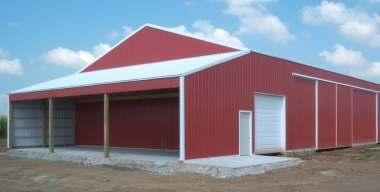
BARN WITH INDOOR ARENA, DAVISON/LAPEER, MI $285,000
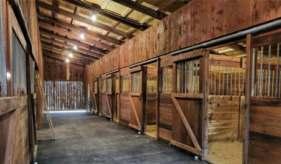
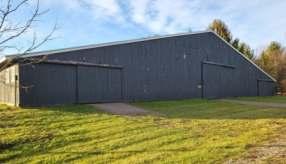
13 Acres | Possible Land Contract Terms: Buy your own private barn with indoor arena between Davison and Lapeer, near I-69. Currently 5 stalls (1 double stall, 1 foaling stall), office, tack room on one side of the arena. Other aisleway has large run in area and plenty of space to add additional stalls.Ample hay storage including loft areas on both sides. Indoor arena has new footing and is approx. 70x64 and has a deck next to tack room that could be a viewing area. 2019: NEW metal roof, NEW asphalt flooring in aisleway between stalls, NEW flooring in stalls & barn was painted in 2020. Stall mats and fencing needed, otherwise turnkey for horses. Barn has water/electric. 13 acres has woods, crops and plenty of room to build a home in the future. Great hunting property! Call either Lori Ross 810.279.8609 or Susan Baumgartner 517.404.6511






& RESIDENTIAL PROPERTIES IN



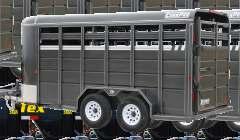




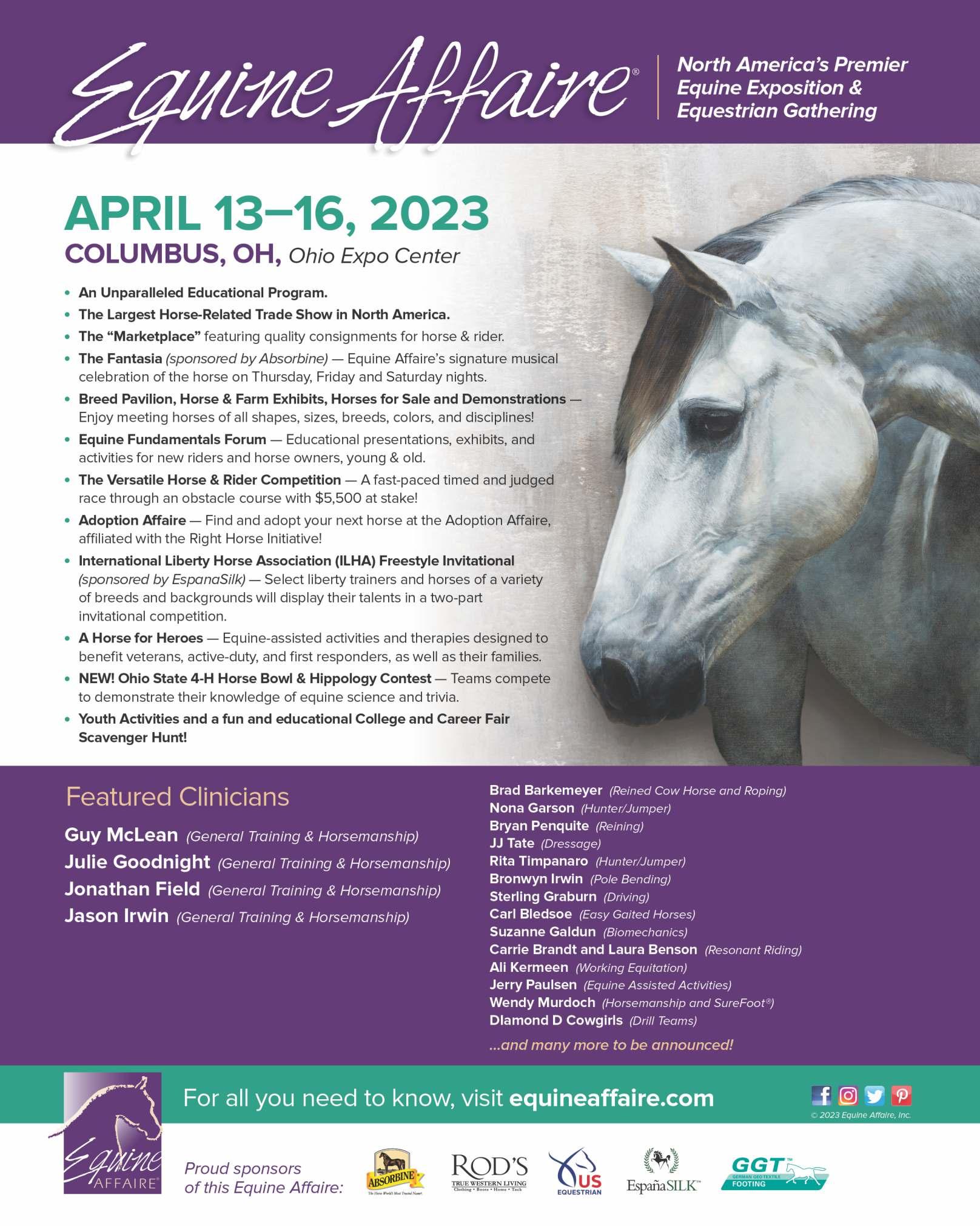
So, I was walking up to a barn, and I see a client strolling down the aisle, shaking her head, obviously concerned about something “What's the matter?” I asked. “I had my horse talk to the psychic,” she said. This is the sort of instance where you can easily blow a doctor-client relationship by saying something like, “Oh, geez, what an utter and complete waste of time and money!” Being somewhat wizened to client psychology at this point, instead, I wondered, “What did she say?”
“Well,” my client offered, “my horse hates the color red.” Perplexed, because among other reasons, I know that horses are mostly color blind, I asked “Why is this a problem?” Turns out that the horse had red leg bandages, so his legs could be wrapped at night. Worse: he had a matching red blanket. The poor beast was covered in red.
Fortunately, there was a solution. “I’m going to have to go out and buy blue leg wraps and a blue blanket this afternoon,” she said. “It's the only way he'll be happy.”
At once nodding sympathetically, and pinching my forearm as hard as I could so as to maintain my composure, I offered her some obviously needed support. I held up pretty well until she said, “Doctor Ramey, I never knew horses were so materialistic.” “Neither did I”, I said, moving quickly towards a quiet spot where I could lie down and hold my sides.
Actually, the whole idea of blanketing horses is mostly pretty silly Horses originated in some of the coldest parts of the world: the central Asian steppes. If they hadn't figured out how to stay warm, they would have frozen out long before we started riding them. See, they've got a nice coat of dense hair to provide insulation, in addition to their body mass.
The body mass of a horse actually makes it fairly hard for them to get rid of heat. In fact, getting rid of body heat is the main problem for most large-bodied animals. Horses have less body surface, relative to their size, than do smaller animals. For example, an elephant has a very big body with relatively little surface area exposed from which it can radiate heat. On the other hand, for a canary, well, cold weather is a big problem. (Does anyone sell canary blankets?)
Graphic Example: When I worked at Iowa State University, after I graduated from veterinary school, a horse died in the barns at about 0 10 p.m. It was 22 degrees below zero outside. All horses that died in the clinic had to have a post-mortem exam. Unfortunately, the pathology lab was closed, so to keep the horse in a state where a good post-mortem exam could be performed, we moved him from inside the barn outside. About 12 hours later, we did the exam. The horse was still quite warm inside. What I'm saying is that if dead 0 horses can stay warm in 22 below zero, live horses can SURE do it. Horses also generate a lot of heat, mostly through digestive activity So when you're feeding hay to your horse in the winter then he's going to be generating a lot of heat on his own. Hay, or any feed, adds fuel to your horse's internal fire, as it were.
Now, if you live in Finland, and it's January, and you've body clipped your horse, and you insist on keeping your horses outside all of the time, go ahead and blanket him. But the idea that horses might ever get cold in the warmer climes – say southern California – is fairly hard to understand, at least from a horse physiology standpoint.
It's not that blanketing is necessarily benign, either One of the bad
things that blankets do is compress the horse's hair coat. With a blanket on, they can't fluff up their hair and help insulate themselves. In addition, if it gets wet under the blanket – as it can in a winter storm, or when a horse is sweating under the blanket – the blanket keeps the water from evaporating, making the horse even colder (as you probably know, cold and wet is a pretty miserable thing to be).
So, mostly, there's not really any reason to blanket your horse.
However, blanketing certainly does do a couple of things. It may help keep some dirt off of your horse, which can be helpful if you're at a show Maybe it'll save you some grooming time. If you've decided that the perfect time to body clip your horse is just before the latest blast of arctic air comes your way, putting a blanket on him probably won't hurt. Blankets certainly adorn horses in a delightful color of your choice, which not only allows you to express your design talents, but it allows you to do so without much embarrassment for your horse, since horses are mostly color blind. However, blanketing does NOT do anything to limit the growth of the coat – coat growth is controlled mostly by day length (as the days get shorter, the coat gets longer, and vice versa).
I've seen catalogs that try to sell you on the fact that not only does your horse need blanketing, he needs a different blanket for just about every conceivable temperature range. What I'm saying is that if you are bound and determined to blanket your horse, at least don't see how many of the darn things you can own. They take up a lot of storage space, too.
All this said, my experience has been that no matter the facts, a lot of people are going to blanket their horses anyway, because, well, just because. And, mostly, that's fine – it certainly doesn't hurt them, unless they get their legs wrapped up in it (it happens). And I won't criticize you at all, because I know you're doing it because you love your horse.
When it comes to blanketing your horses, it's mostly for you, not for them. And that's OK. Just don't forget to take his blanket off when 0 the forecast high temperature is 75 F the next day.

Dr. Ramey began veterinary practice in 1984, in the Los Angeles area of southern California. He has been providing outstanding care to horses in southern California ever since. He specializes in the care and treatment of pleasure and performance horses. His clients particularly value his no nonsense approach, focused on providing services instead of selling products, his compassion for horses, and his ethical approach to the practice of veterinary medicine.
You can find Dr. Ramey DVM on Facebook or by visiting his website at https://www.doctorramey.com/
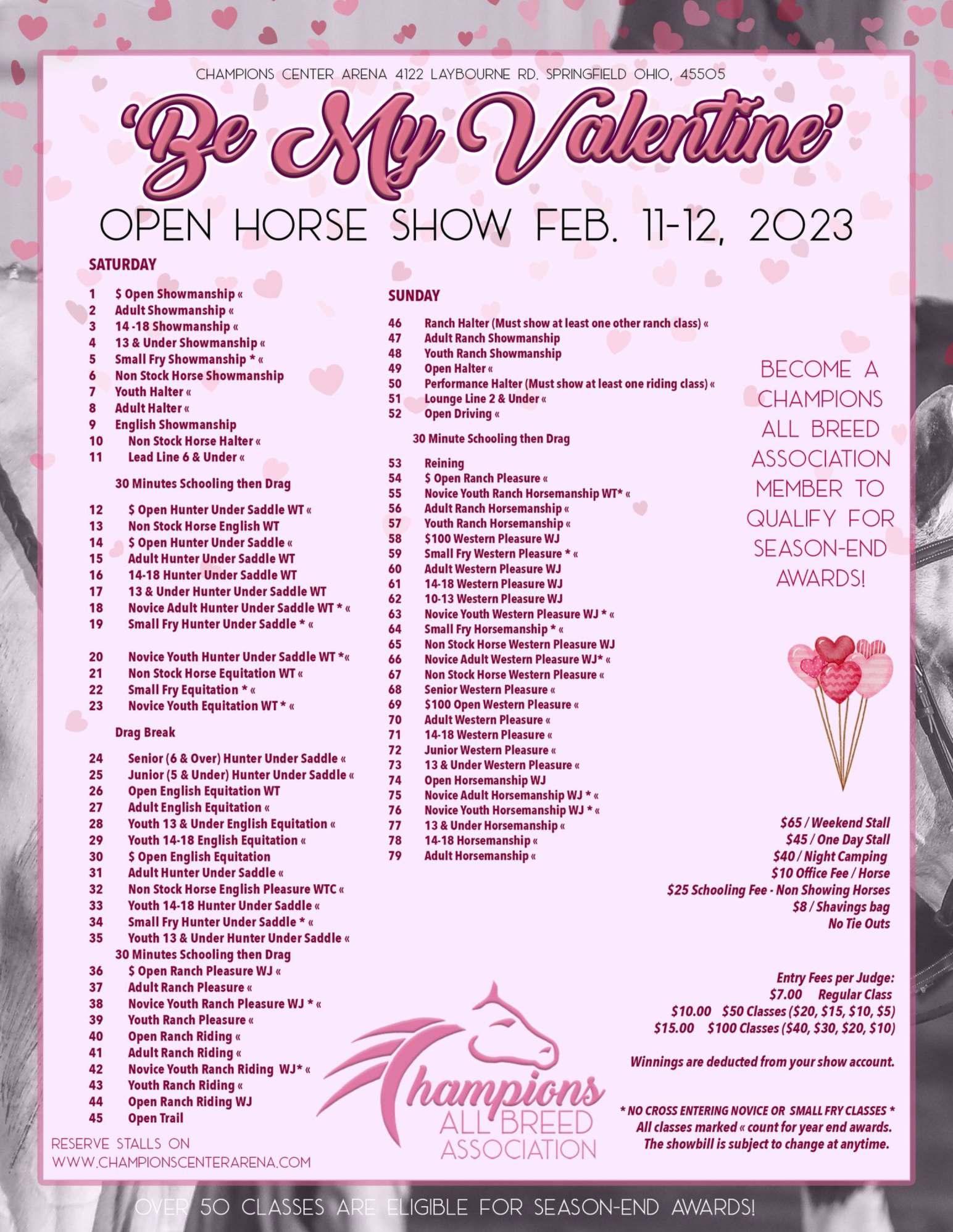
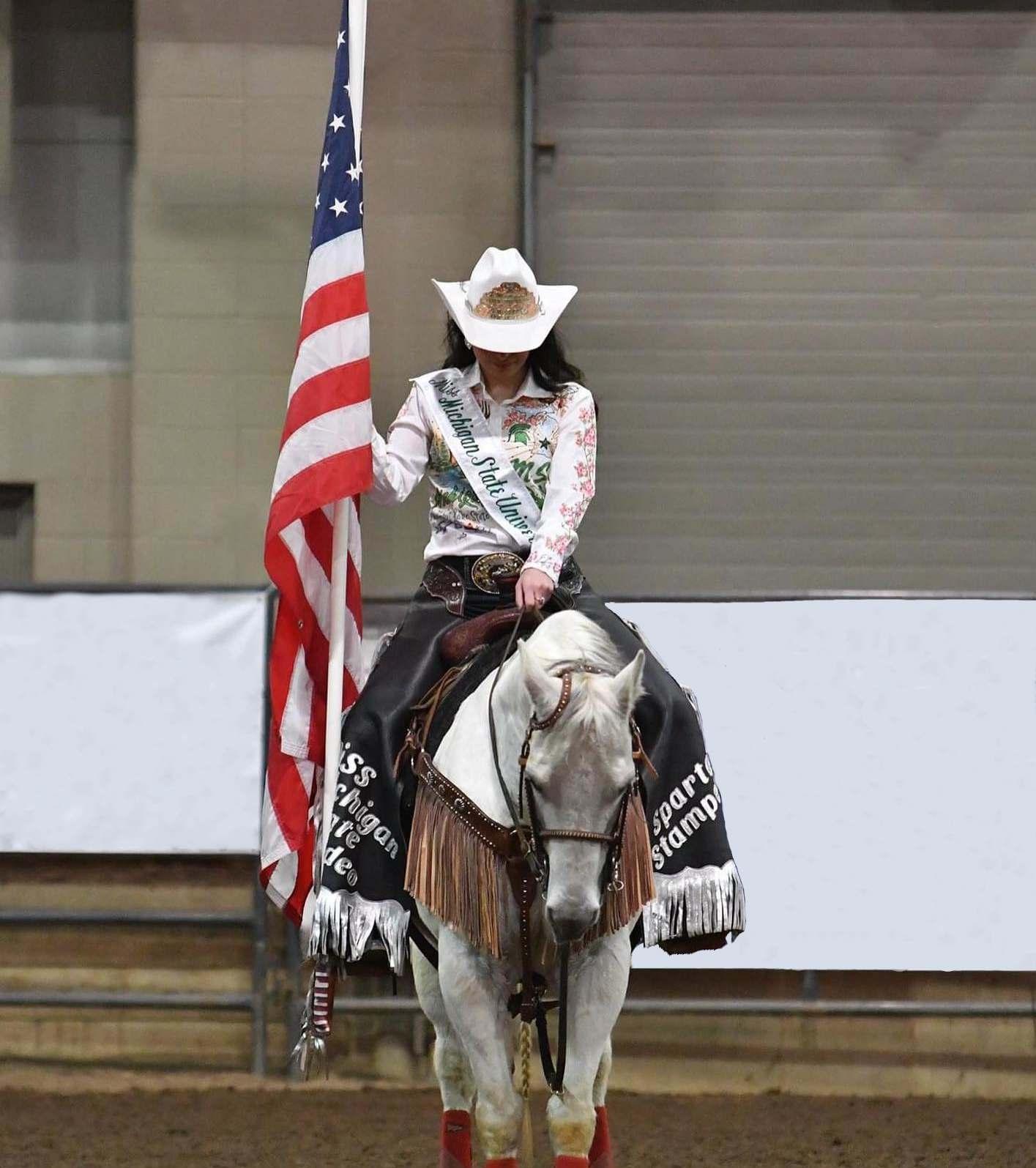


















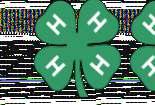
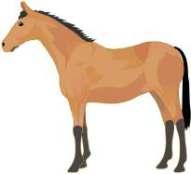
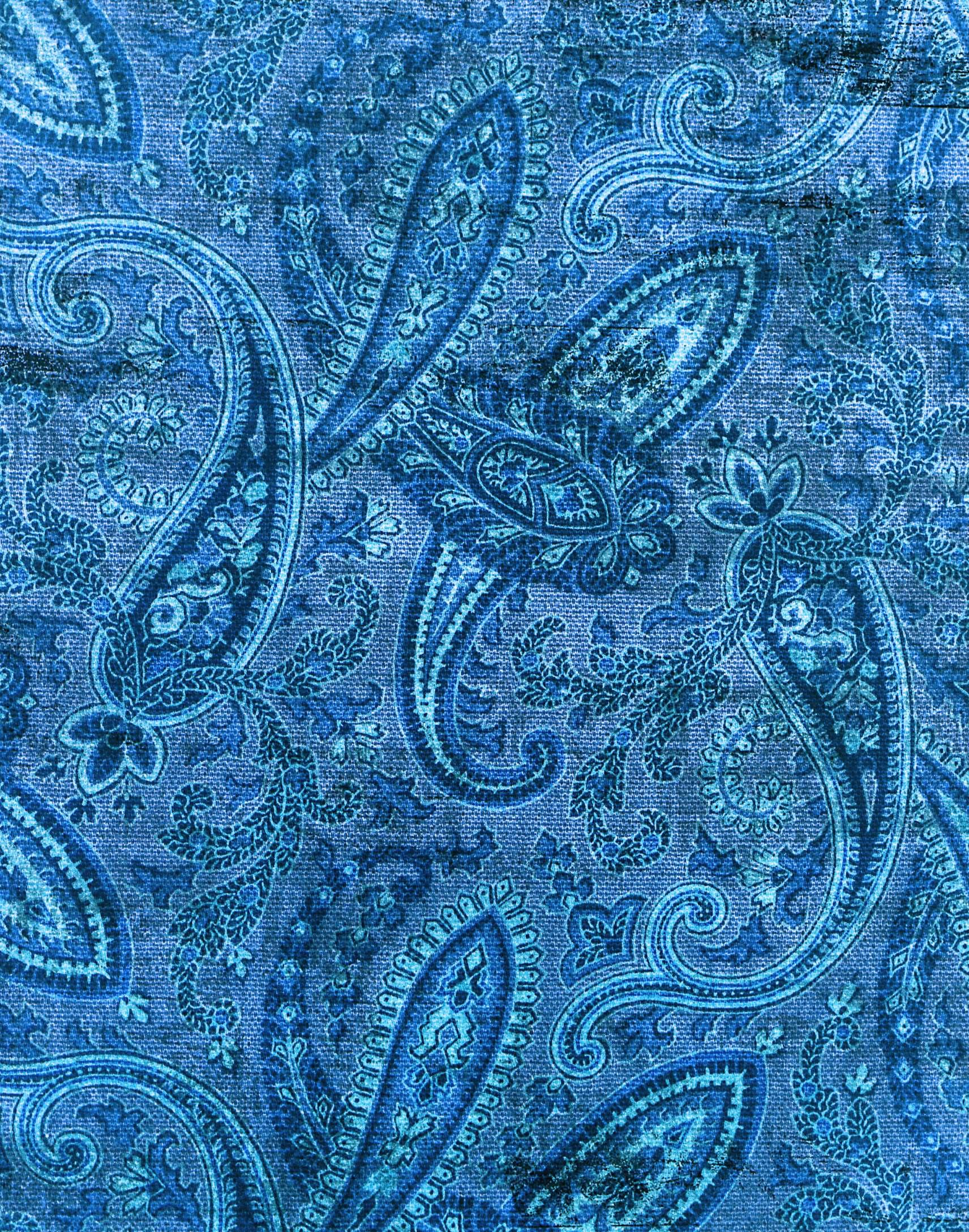



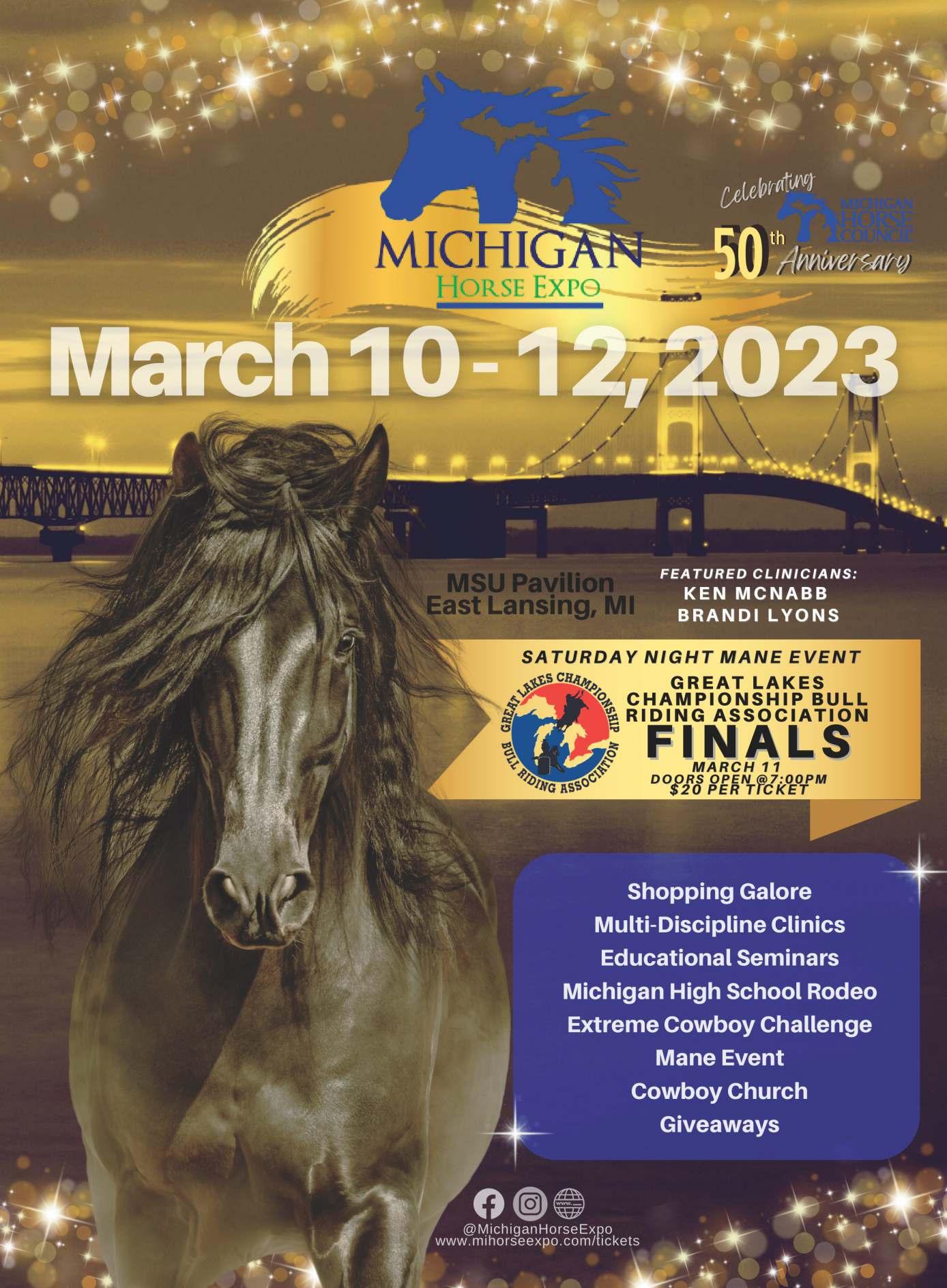
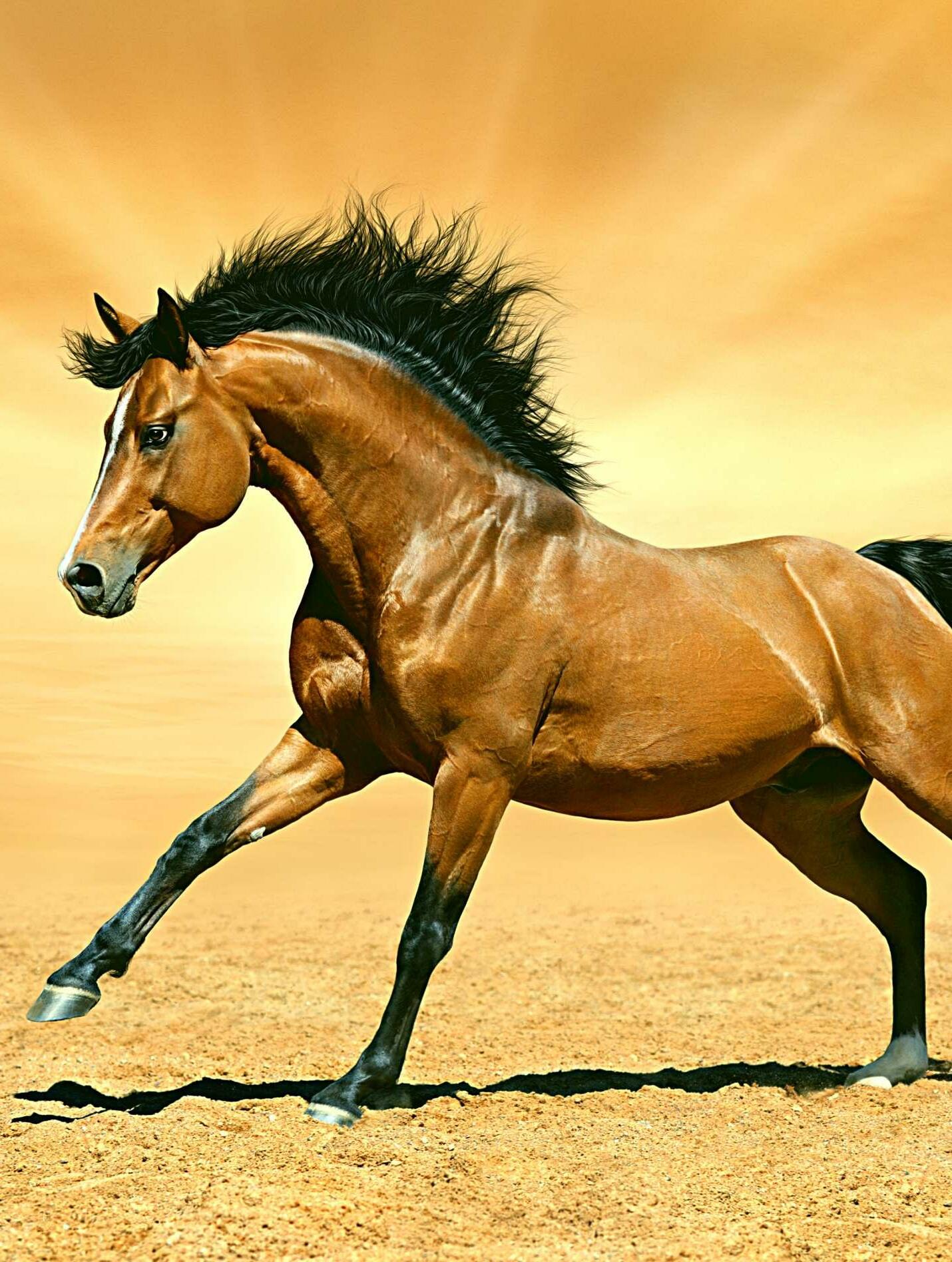


Lapeer Center for Innova�on (Old Lapeer West High School) 170 Millville Rd Lapeer, MI 48446

Use South parking lot near the gymnasium and cafeteria.
Saturday March 18, 2023
10:00am – 2:00pm No early entry
Vendors: $30 per 10x10 space
Late fee a�er March 11th spaces will be $45
Please bring your own tables and chairs Set up starts at 8:00 am
No refunds. No sale of pop or food allowed, vendors are allowed 2 “workers” per space purchased, addi�onal people must pay admission.
Reserve your space now! Mail bo�om of the form with checks payable to MIHA Lapeer Eq Team to Amanda Dixon 8325 Petz Rd. Imlay City, MI 48444
You will receive a confirma�on email when we receive your payment
Admission- $3 Cash Only, Children 10 and under- Free Ques�ons?
Call Amanda Dixon @ 810-614-3691 or Kaitlynn Tuckey @ 810-614-1468 or
lapeerequestrianteam@yahoo.com
Lapeer High School Equestrian Team Tack Sale Registra�on Form

Business/Club name _ _ Phone __
Contact name_ ___E-mail__
Address _____ # of 10x10 spaces x $30= $

Late entry (a�er March 11th) __ _x $45= $
Total = $__
Mail to: Amanda Dixon 8325 Petz Rd. Imlay City, MI 48444
Make checks payable to MIHA Lapeer Eq Team





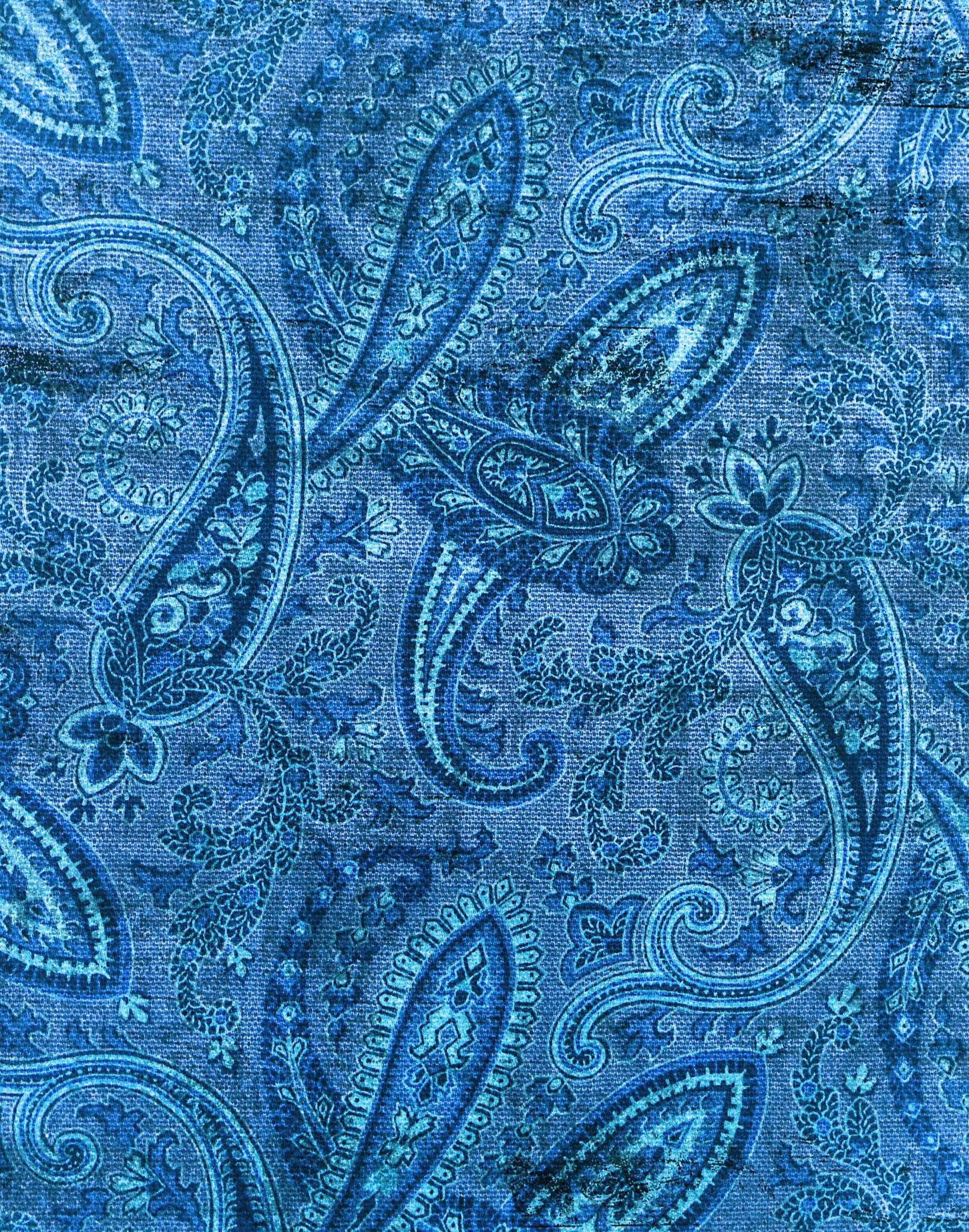


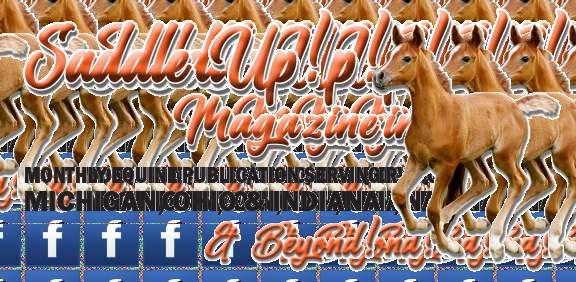
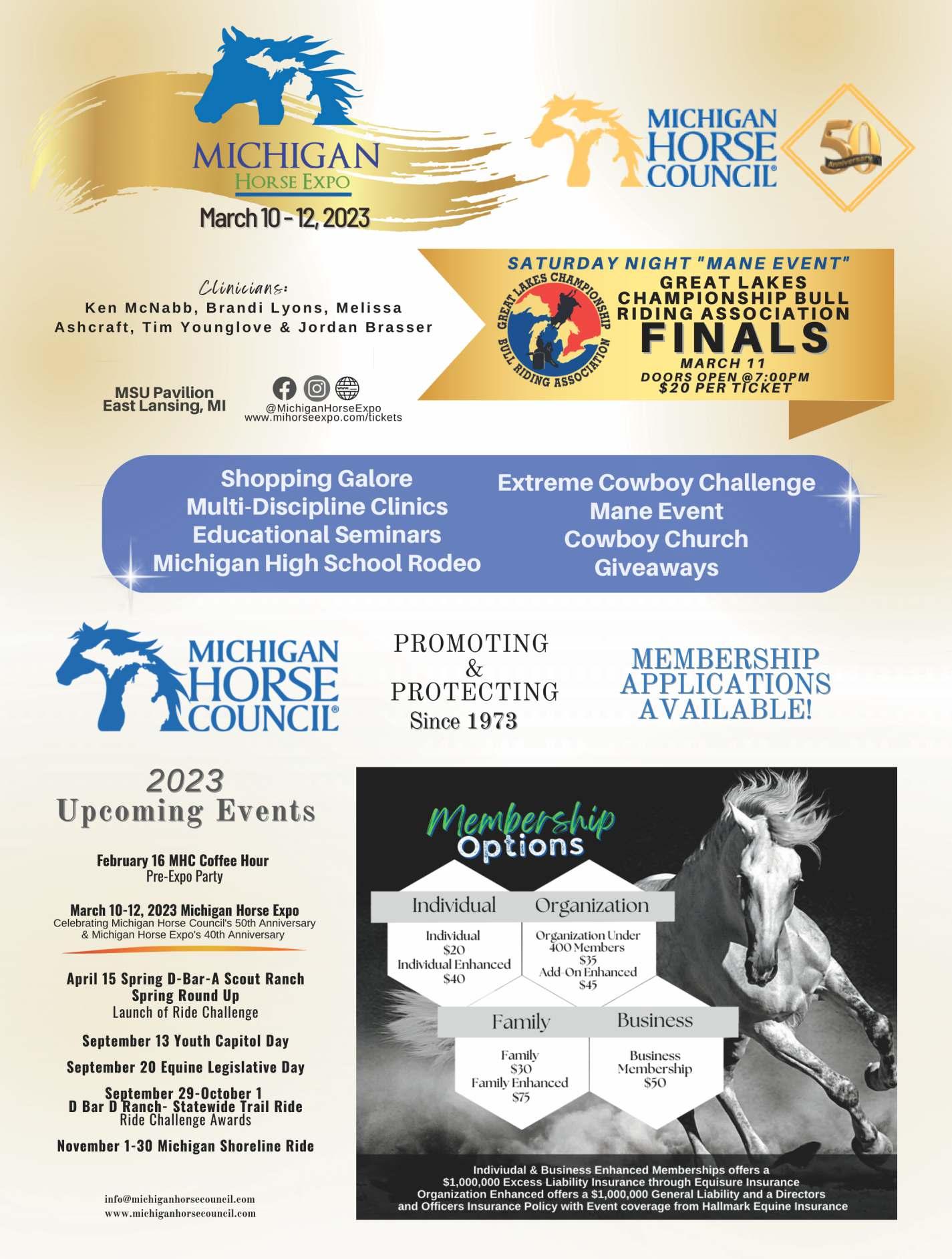
ORGANIC
7508 M E CAD BLVD, STE B, CLARKSTON, MI



248.550.6755
Mitch@HealthyFuturesOFS.com |
LARGE COMMERCIAL FACILITY - COME SEE US! 169 W. Clarkston Rd., Lake Orion, MI 48362
THE LAUNDRY BARN (248) 318-4646 (call/text)
DROP OFF/PICK UP LOCATIONS: Brighton, Holly, Highland, MI
Lapeer Equestrian Team Fundraiser

Saturday, March 18, 2023 | 10am-2pm
No Early Entry | Admission $3 (cash only) | 10 & Under Free LAPEER CENTER FOR INNOVATION
(Old Lapeer West High School) 170 Millville Rd., Lapeer, MI Use South parking lot near gymnasium and cafeteria

$30 per 10x10 space (before March 11), $45 after. Bring your own tables and chairs. Set-up starts at 8am. Vendors allowed two workers per space. Additional people must pay admission. No refunds. No sale of food or beverages allowed.
Make checks payable to: MIHA Lapeer Equestrian Team Mail to: Amanda Dixon, 8325 Petz Rd., Imlay City, MI 48444 Include: business/club name, contact name, phone, email, number of spaces, $15 late fee if after March 11th per space. Once payment is received, you will receive a conrmation email.
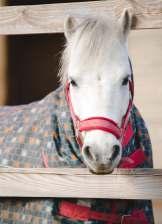



Questions? Amanda Dixon 810.614.3691 or Kaitlynn Tuckey 810.614.1468
Email: lapeerequestrianteam@yahoo.com
Donations of show equipment, tack & clothing always welcome!


